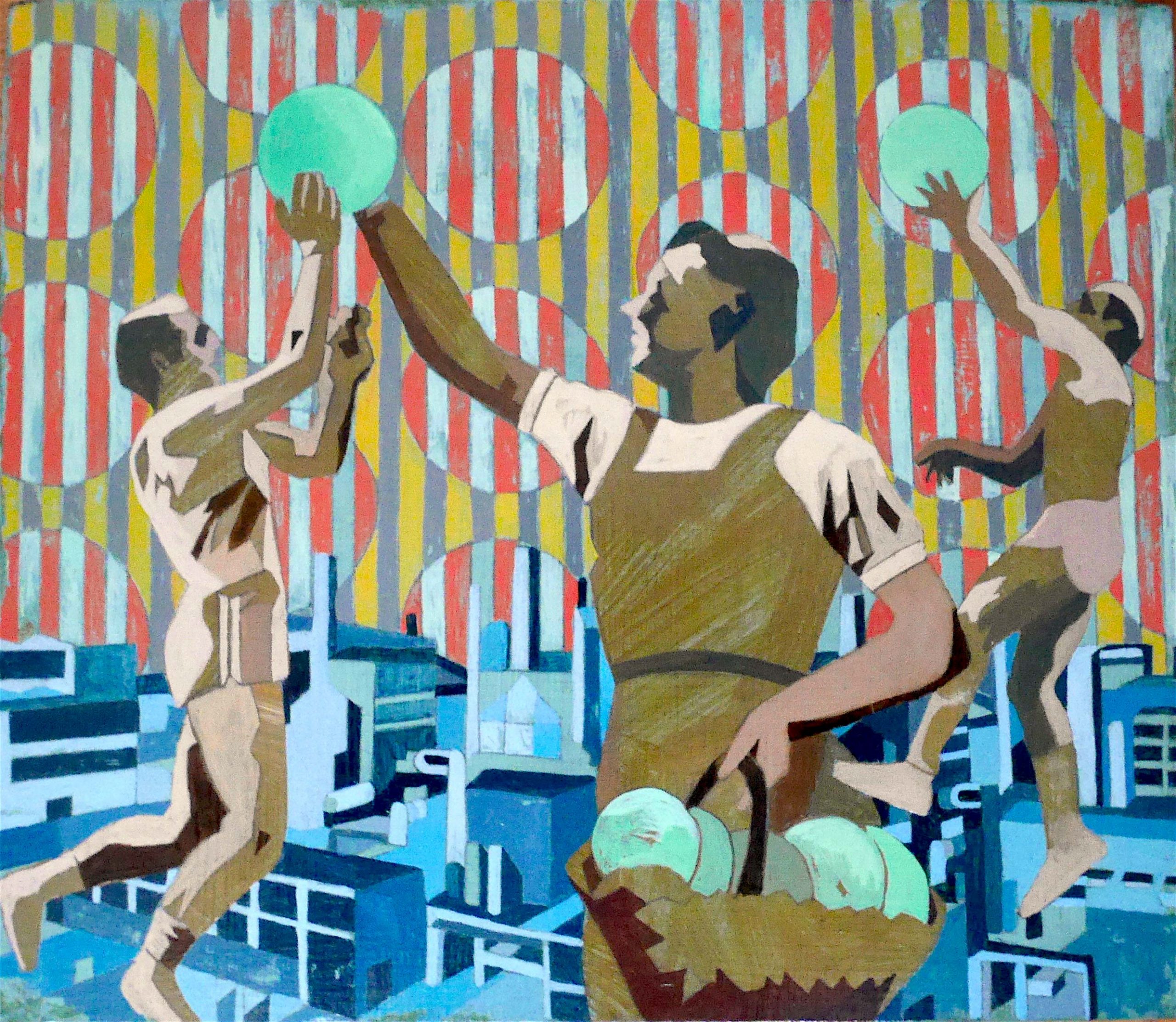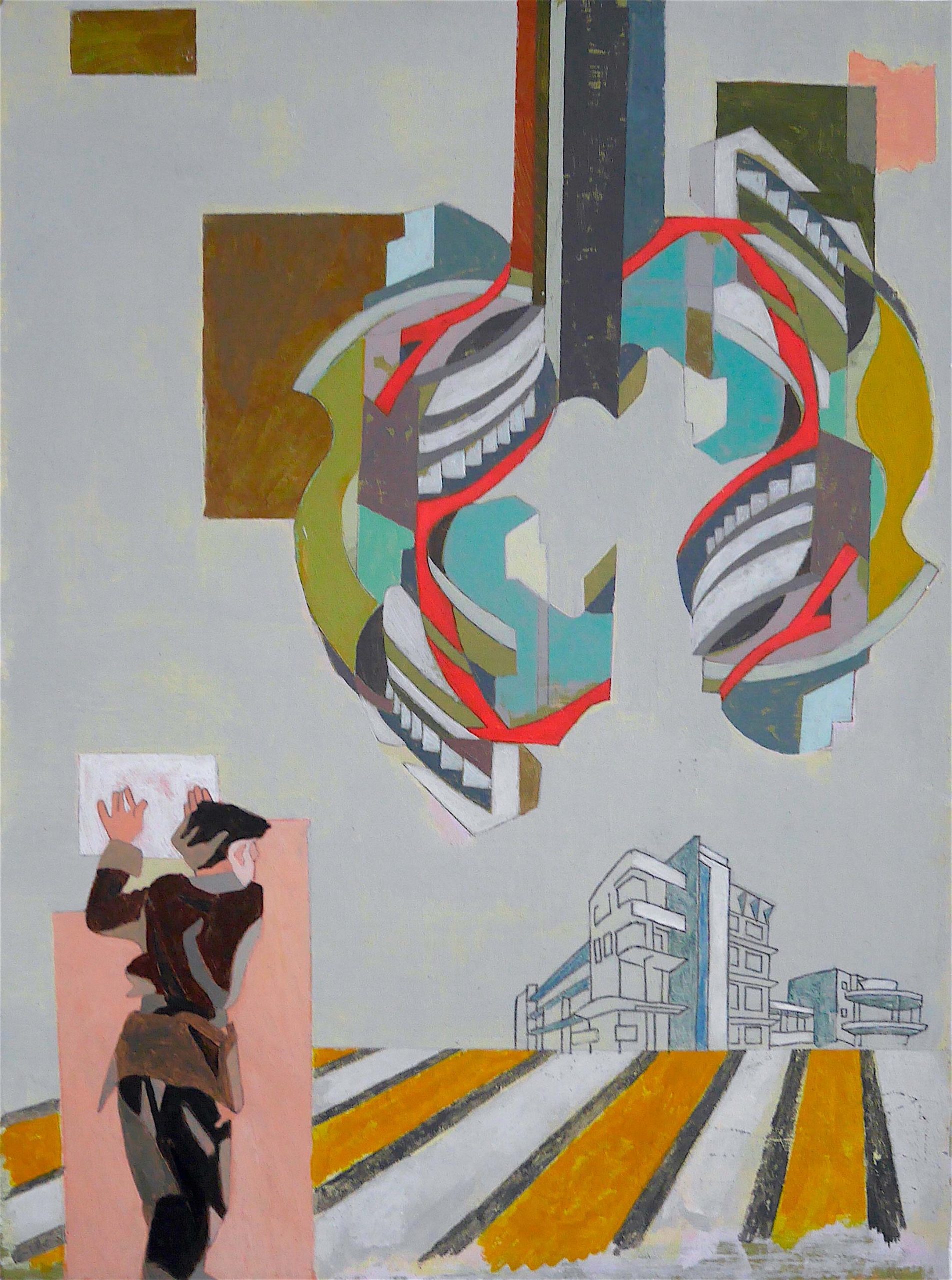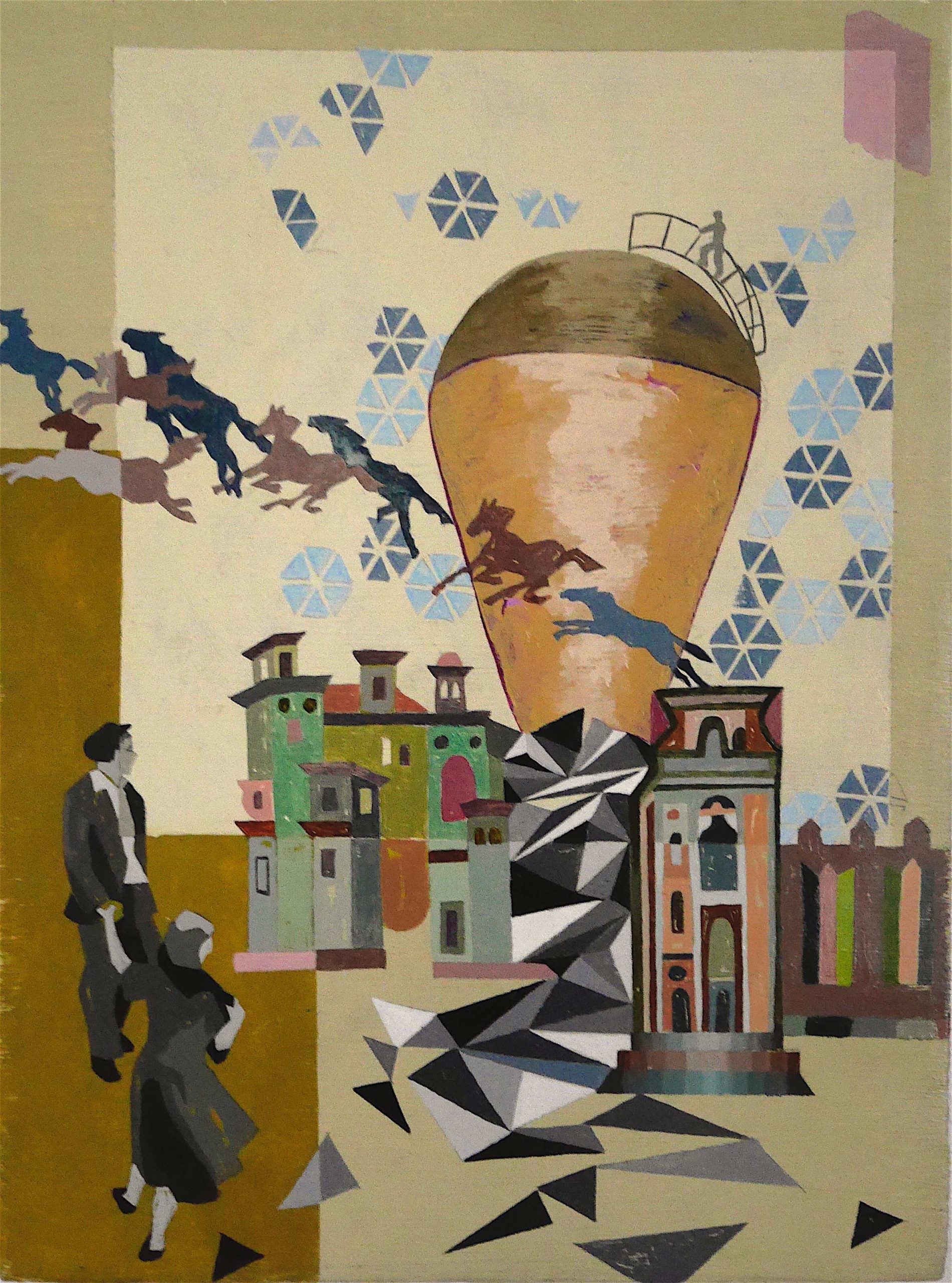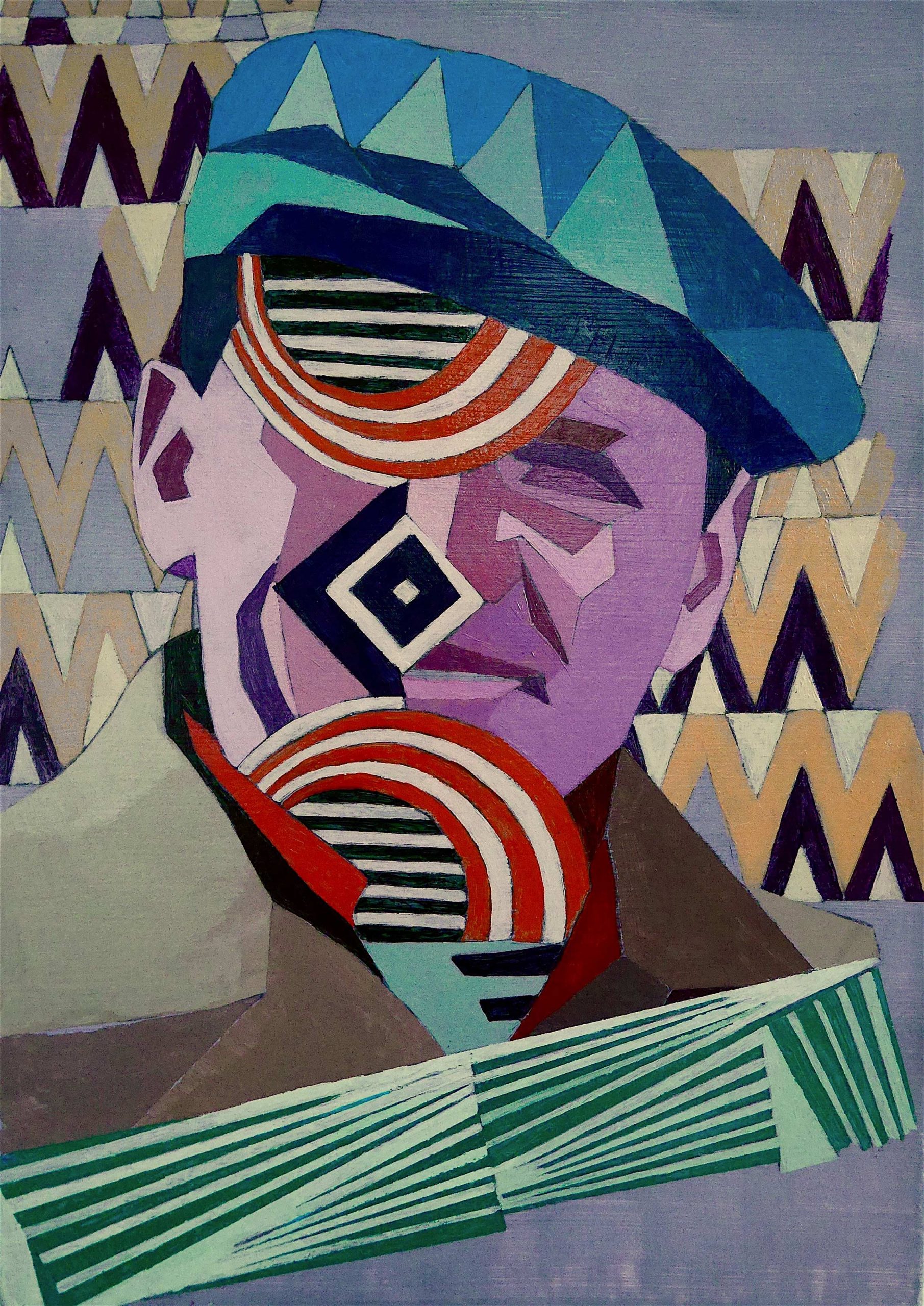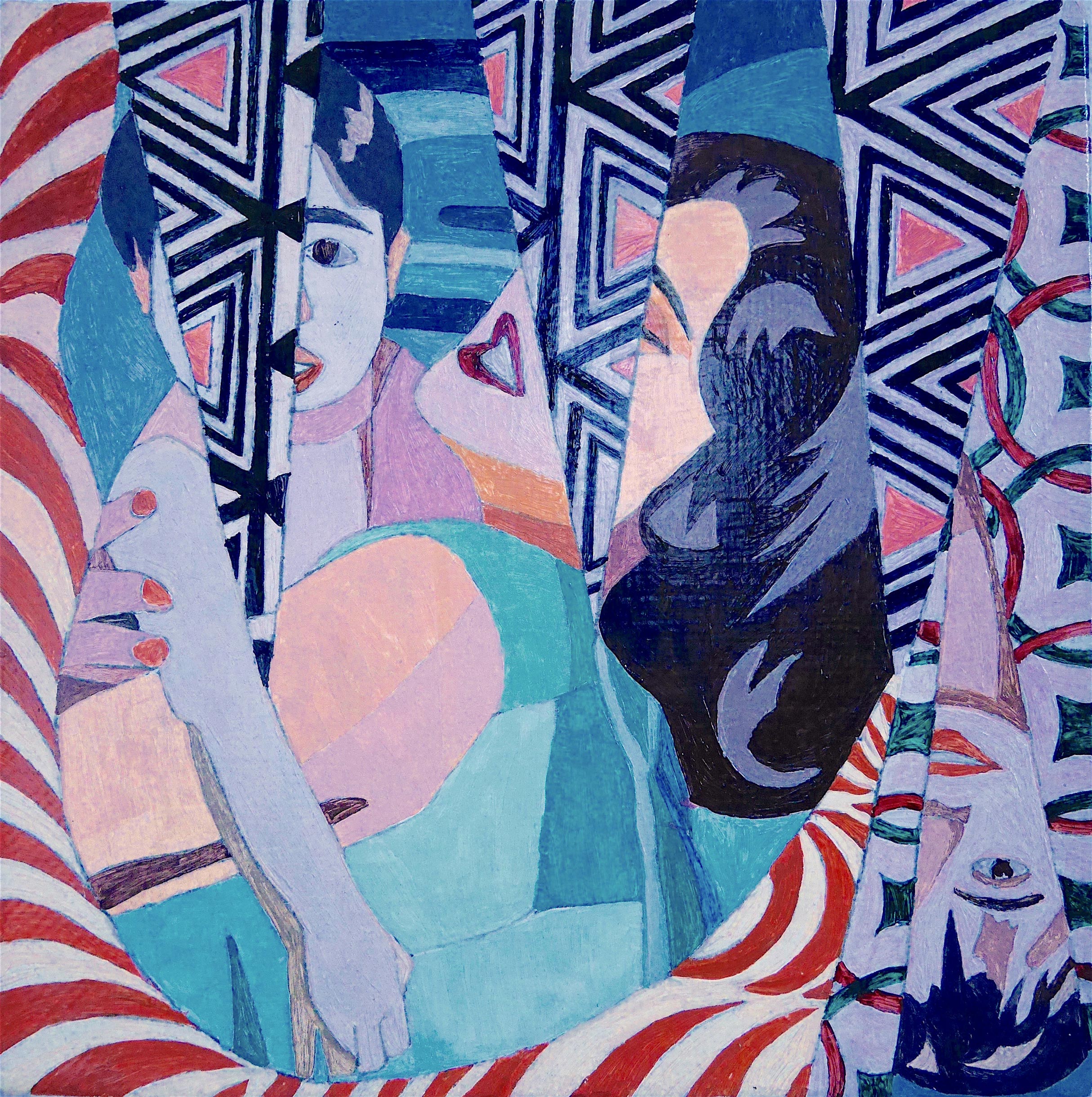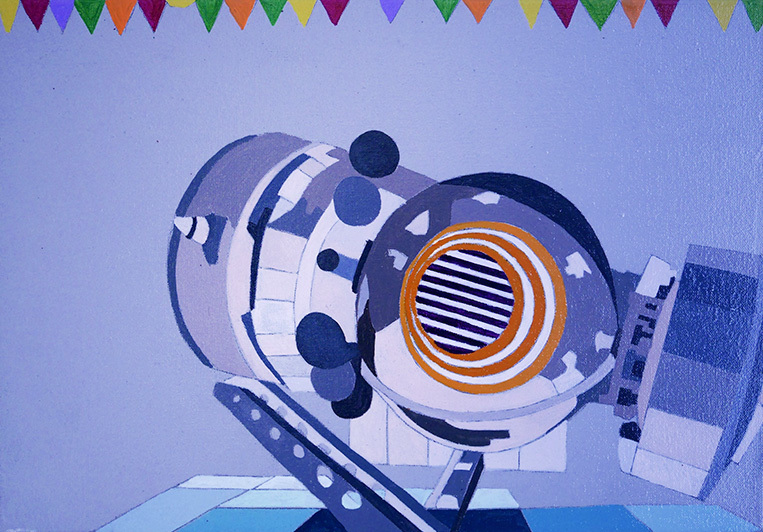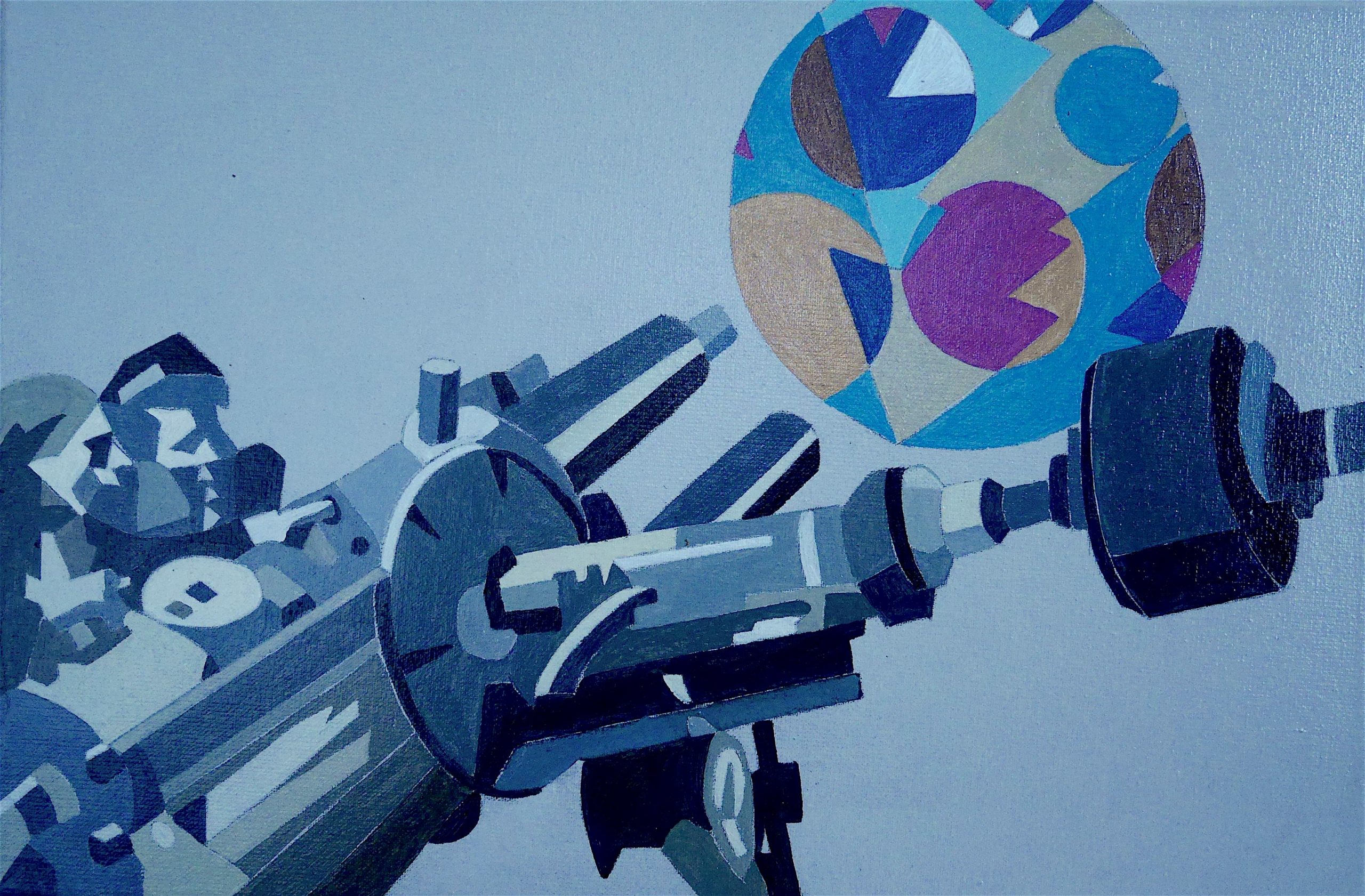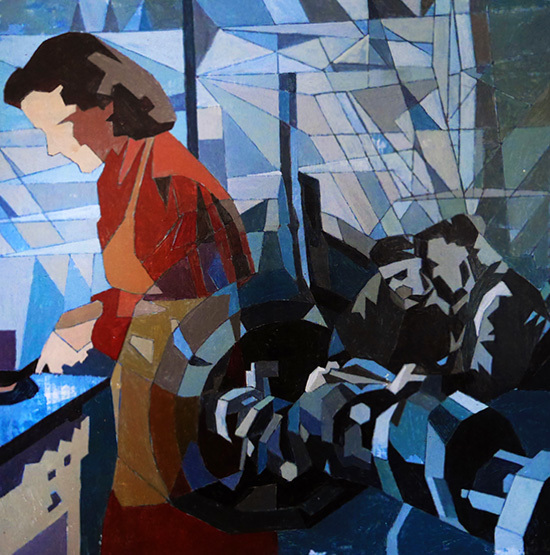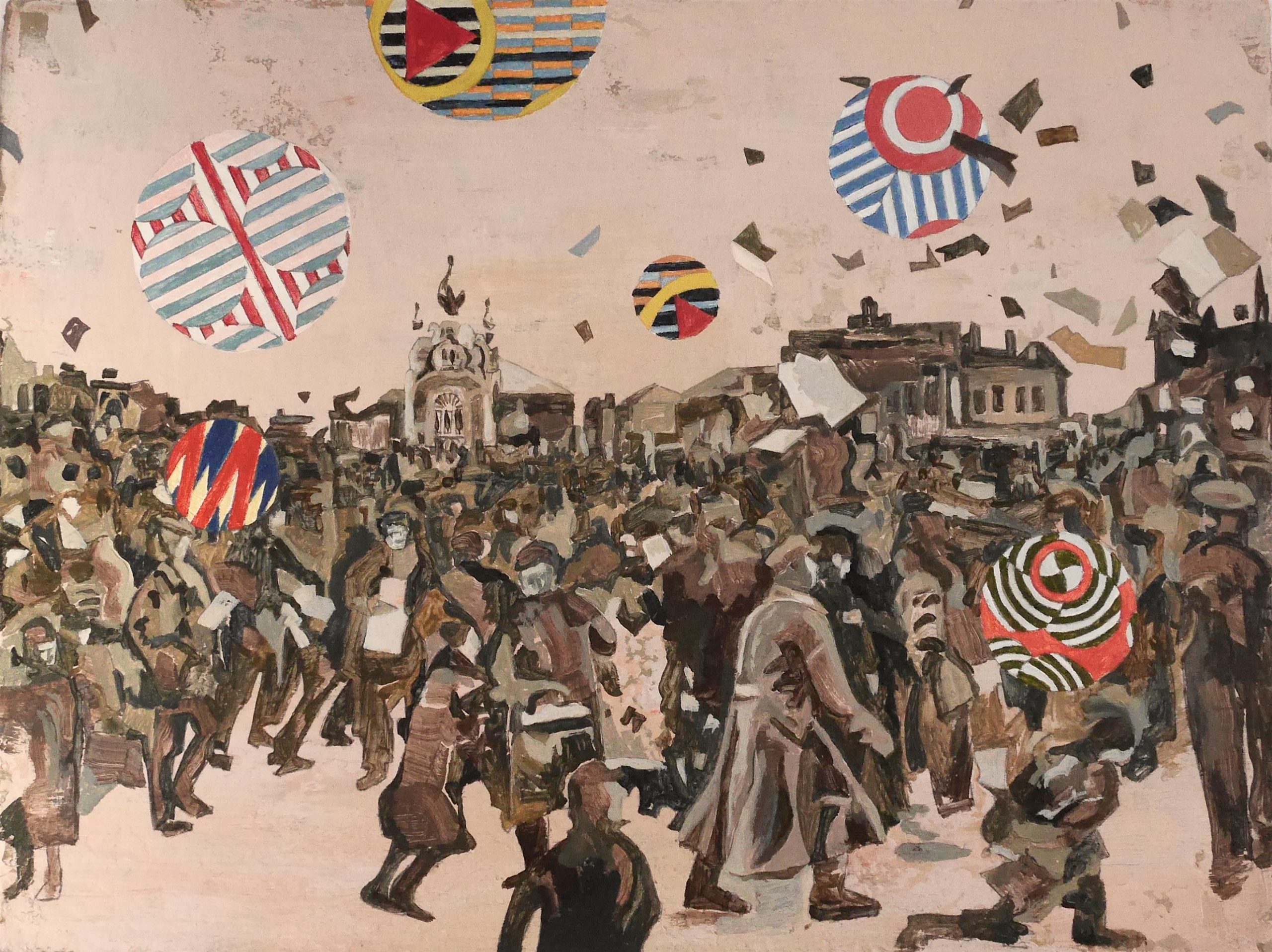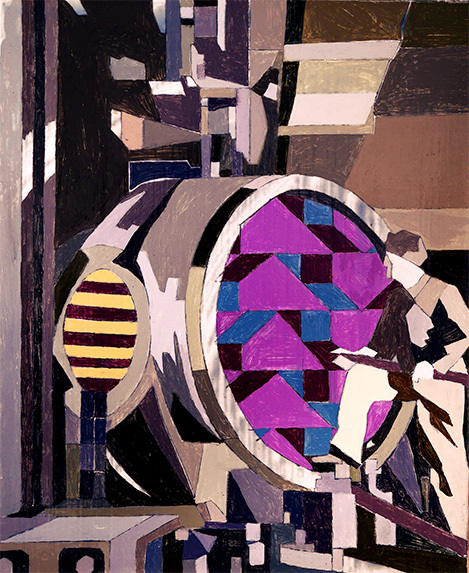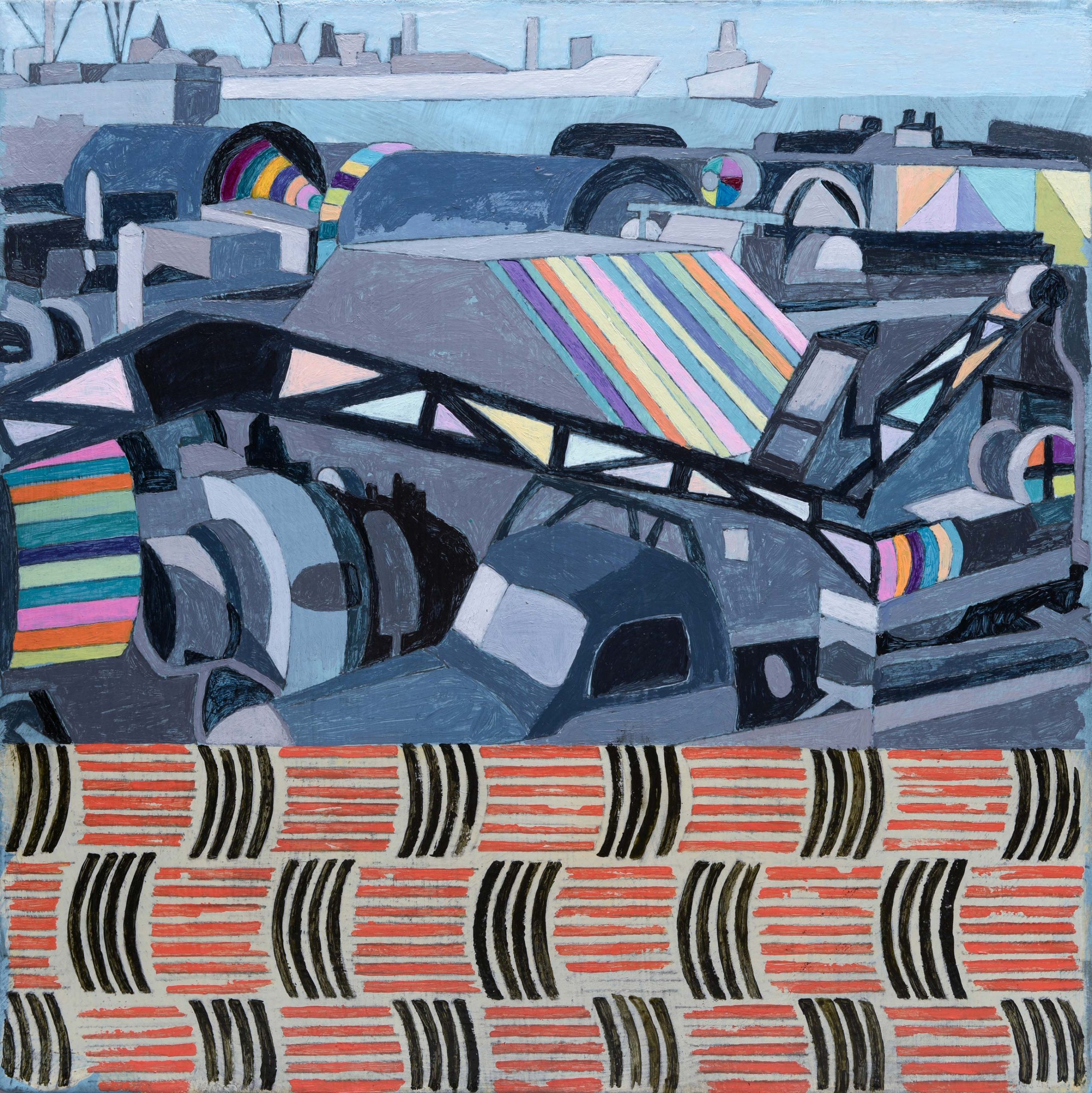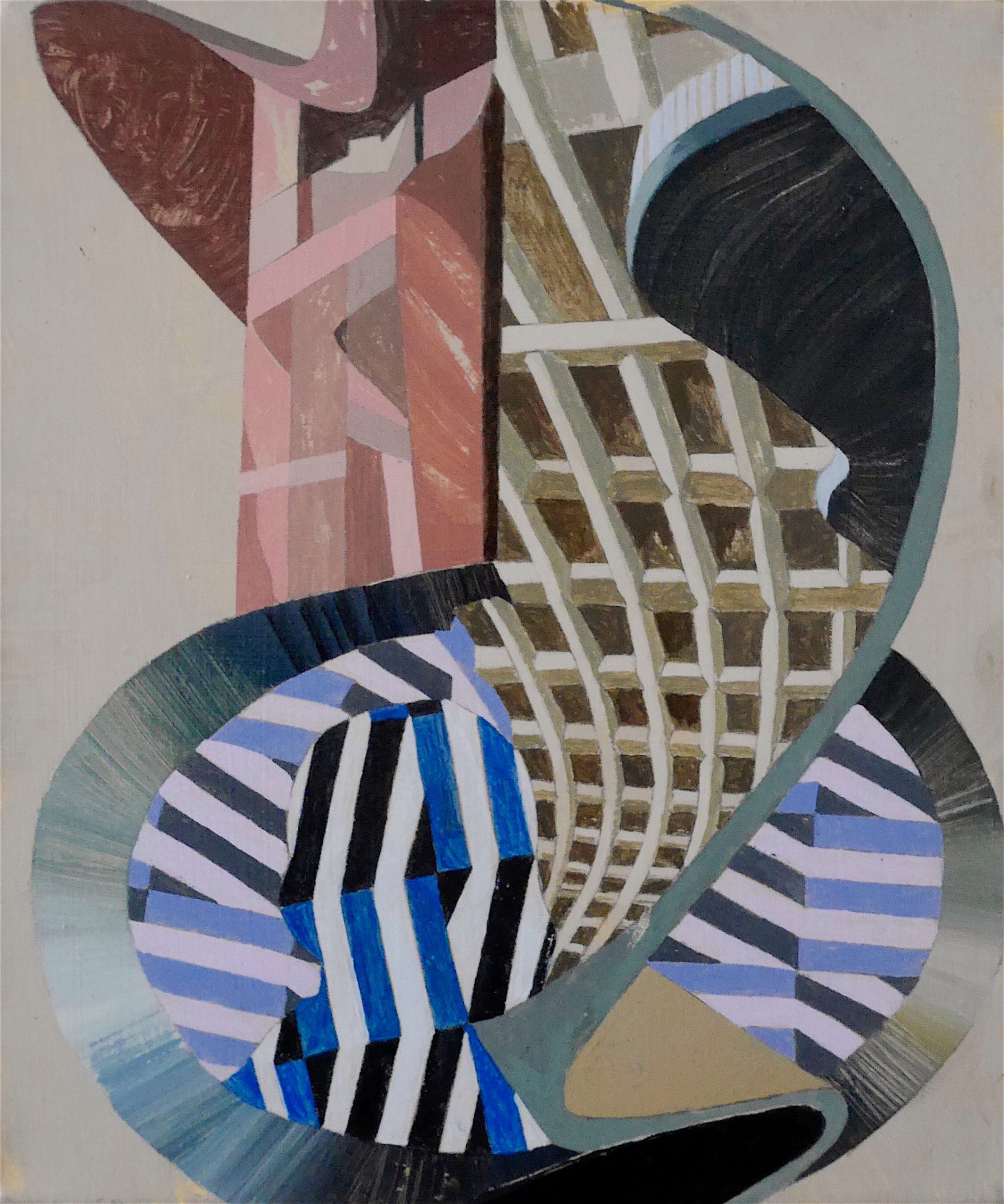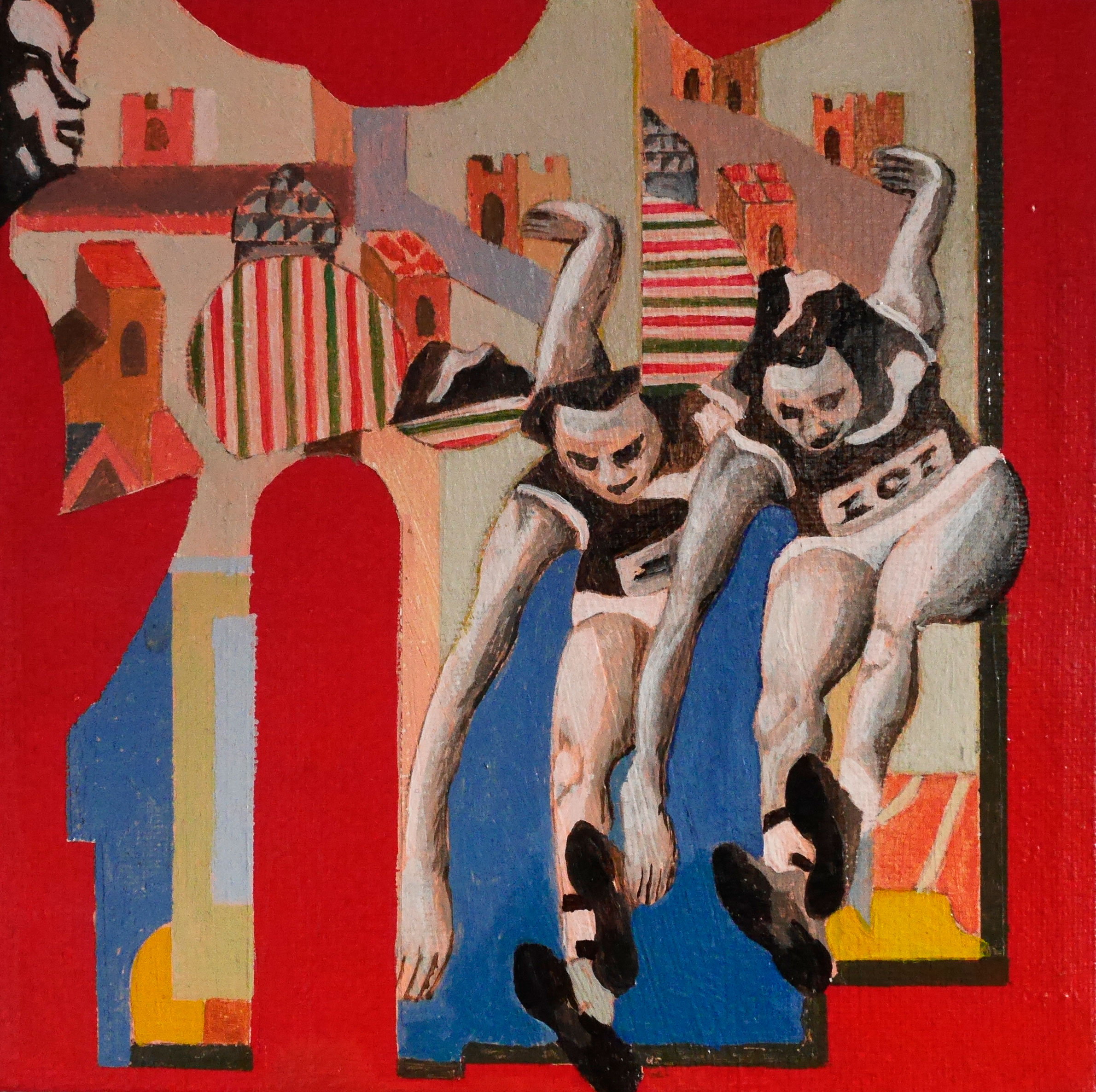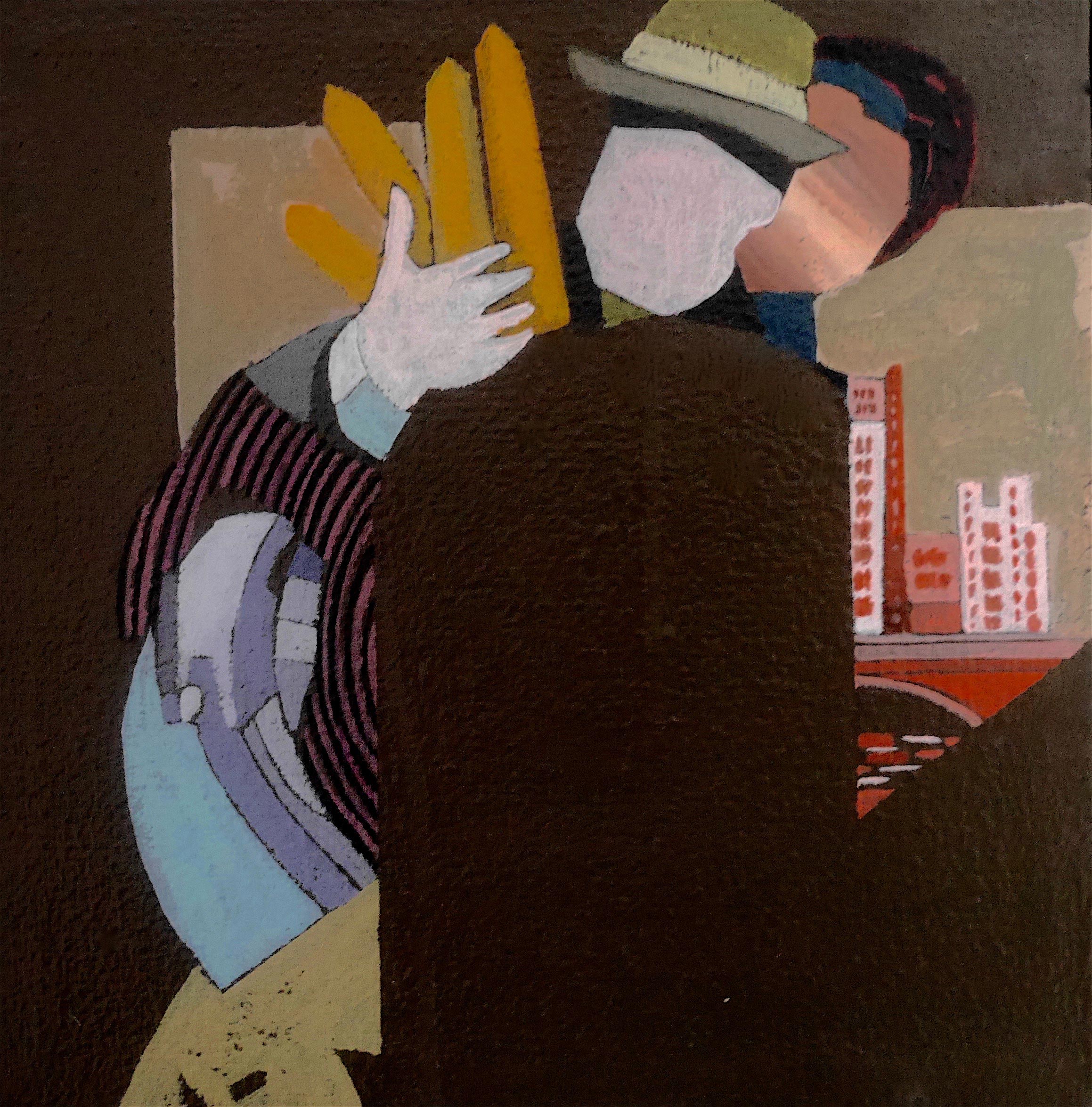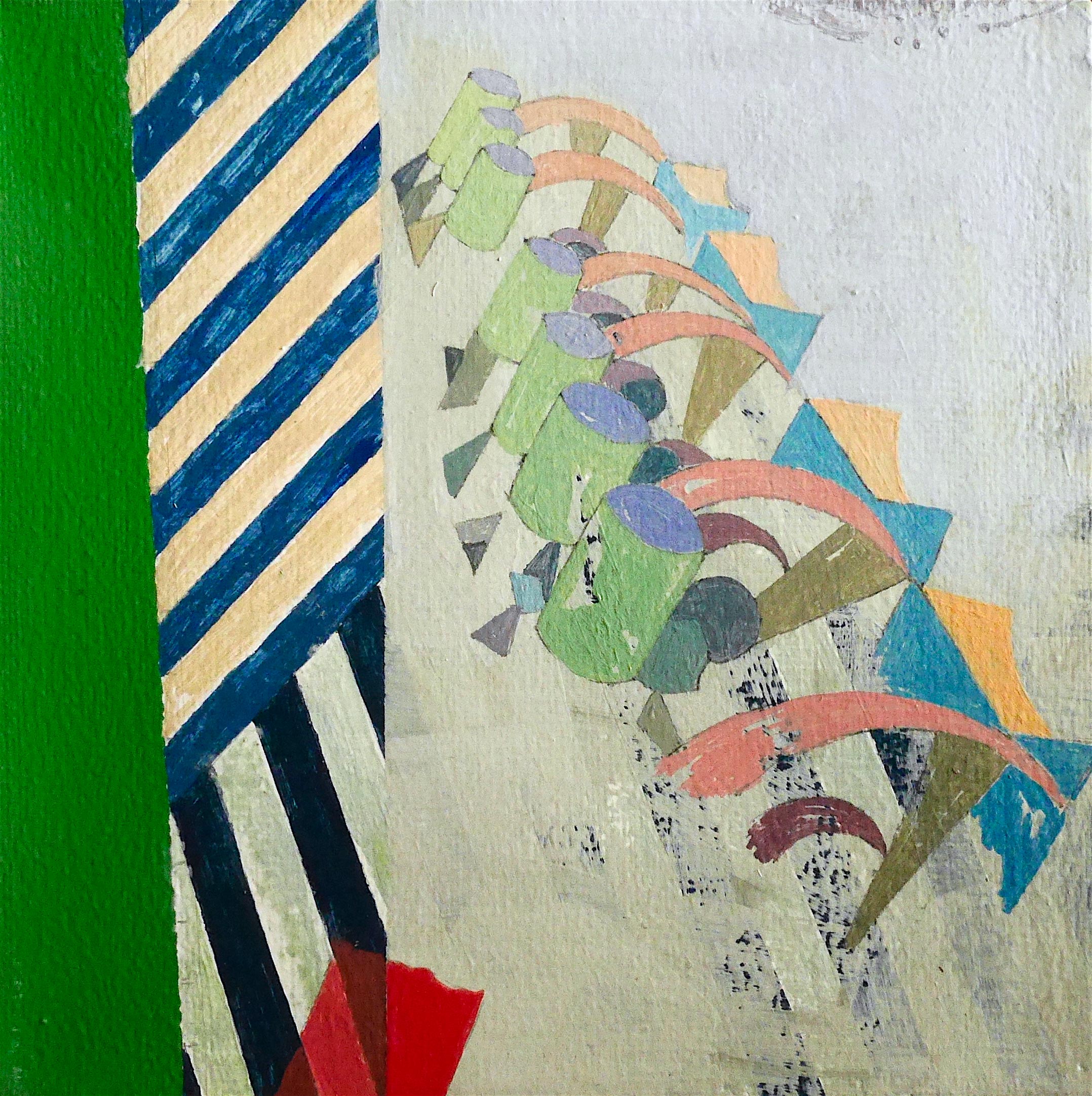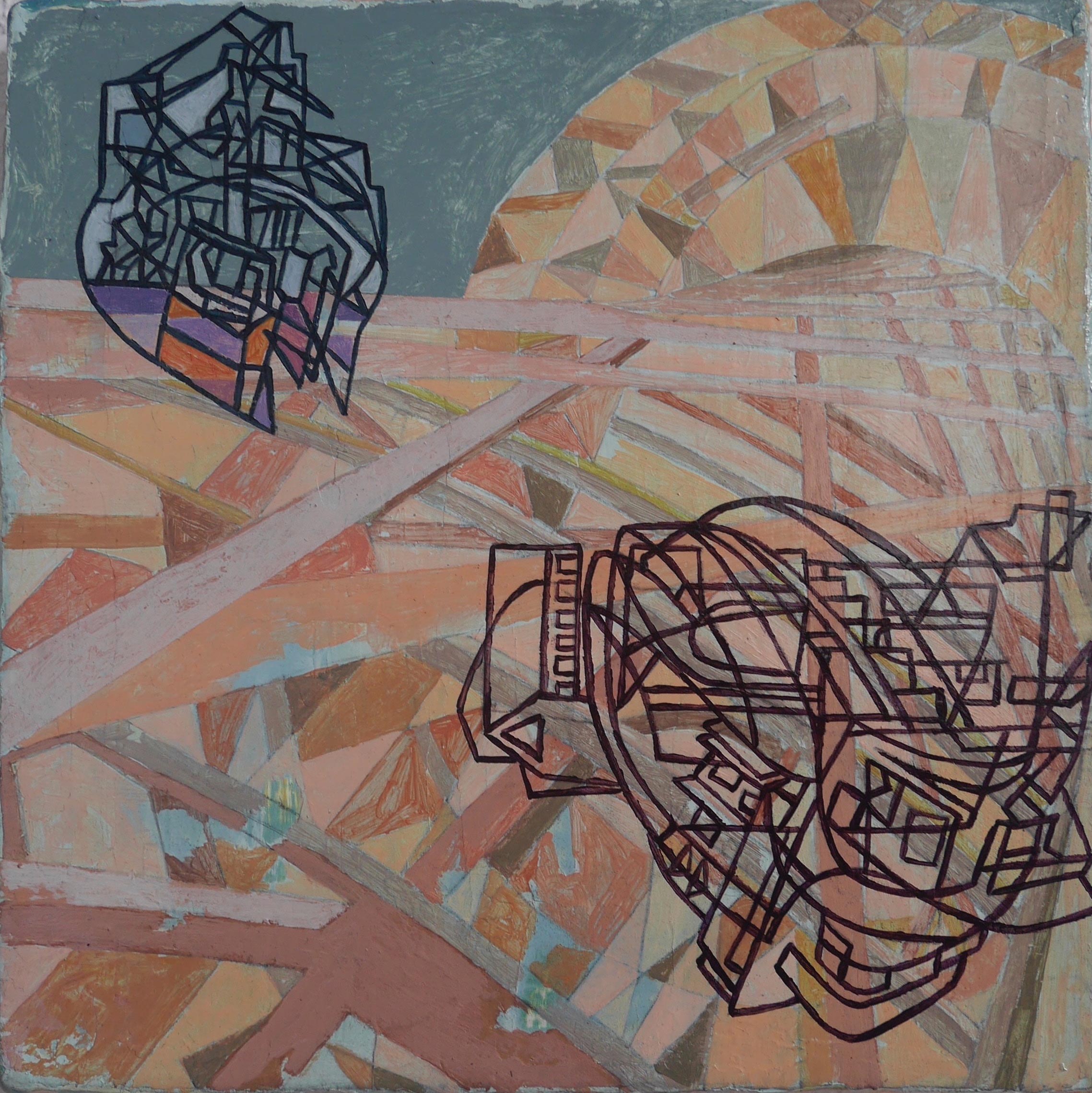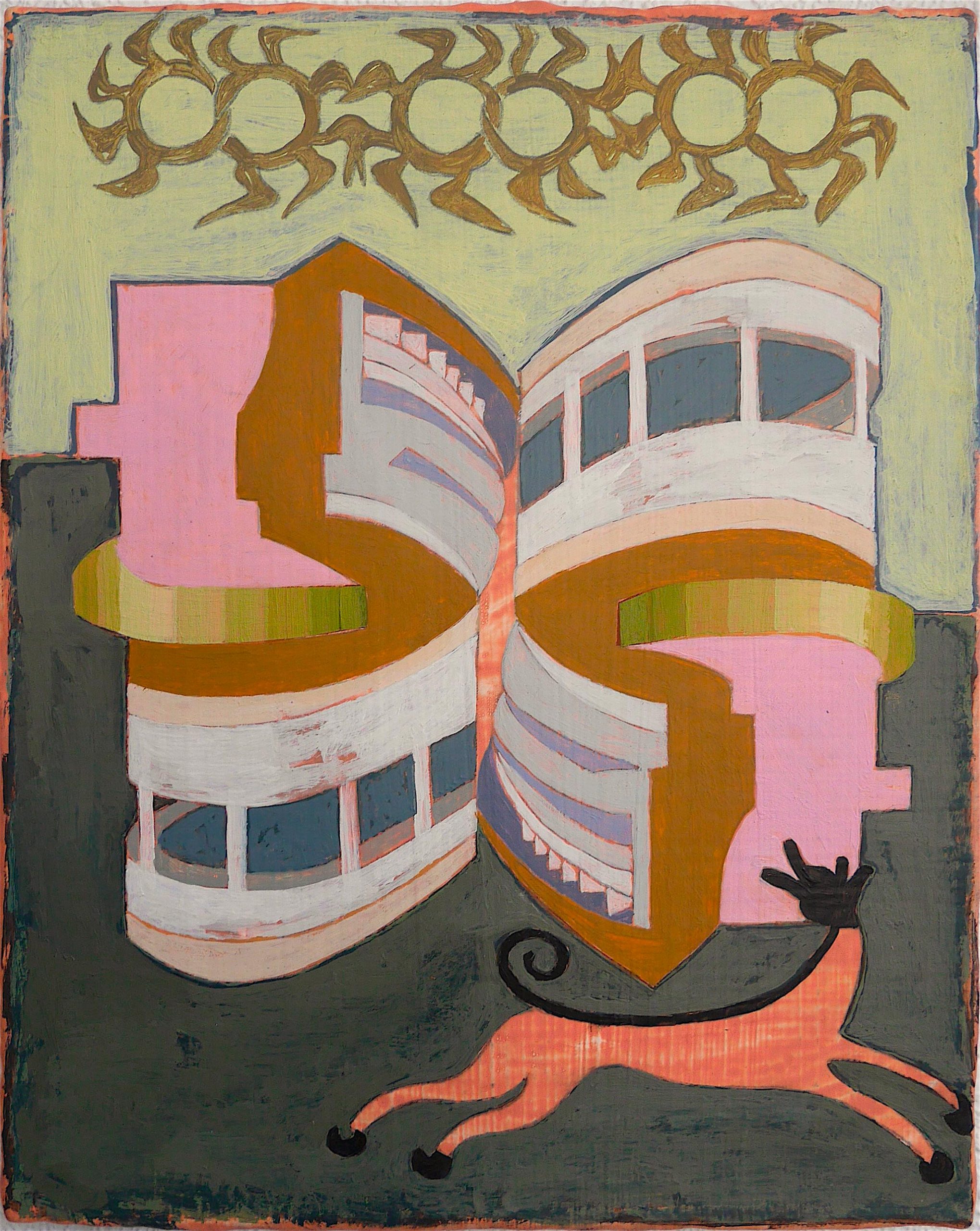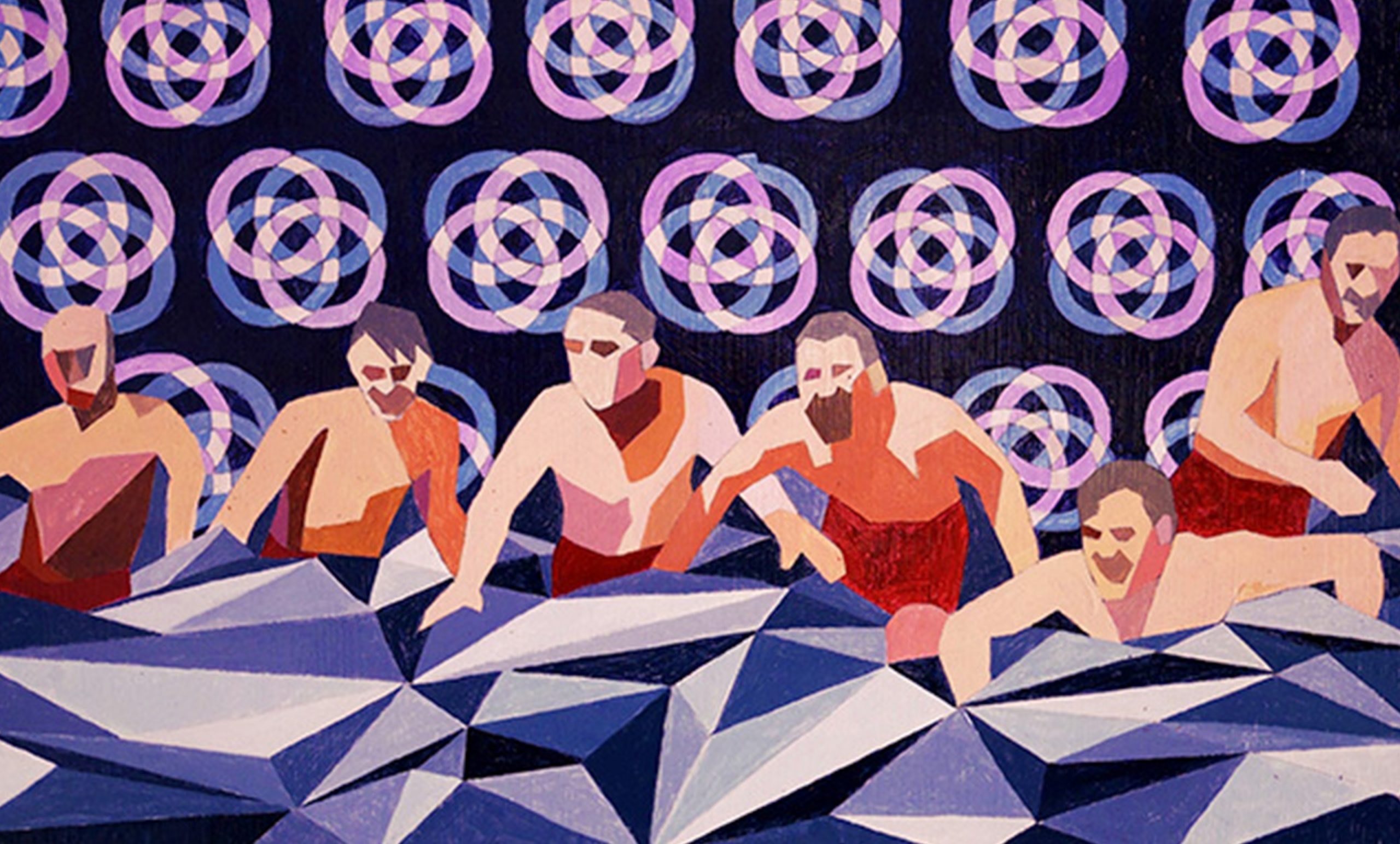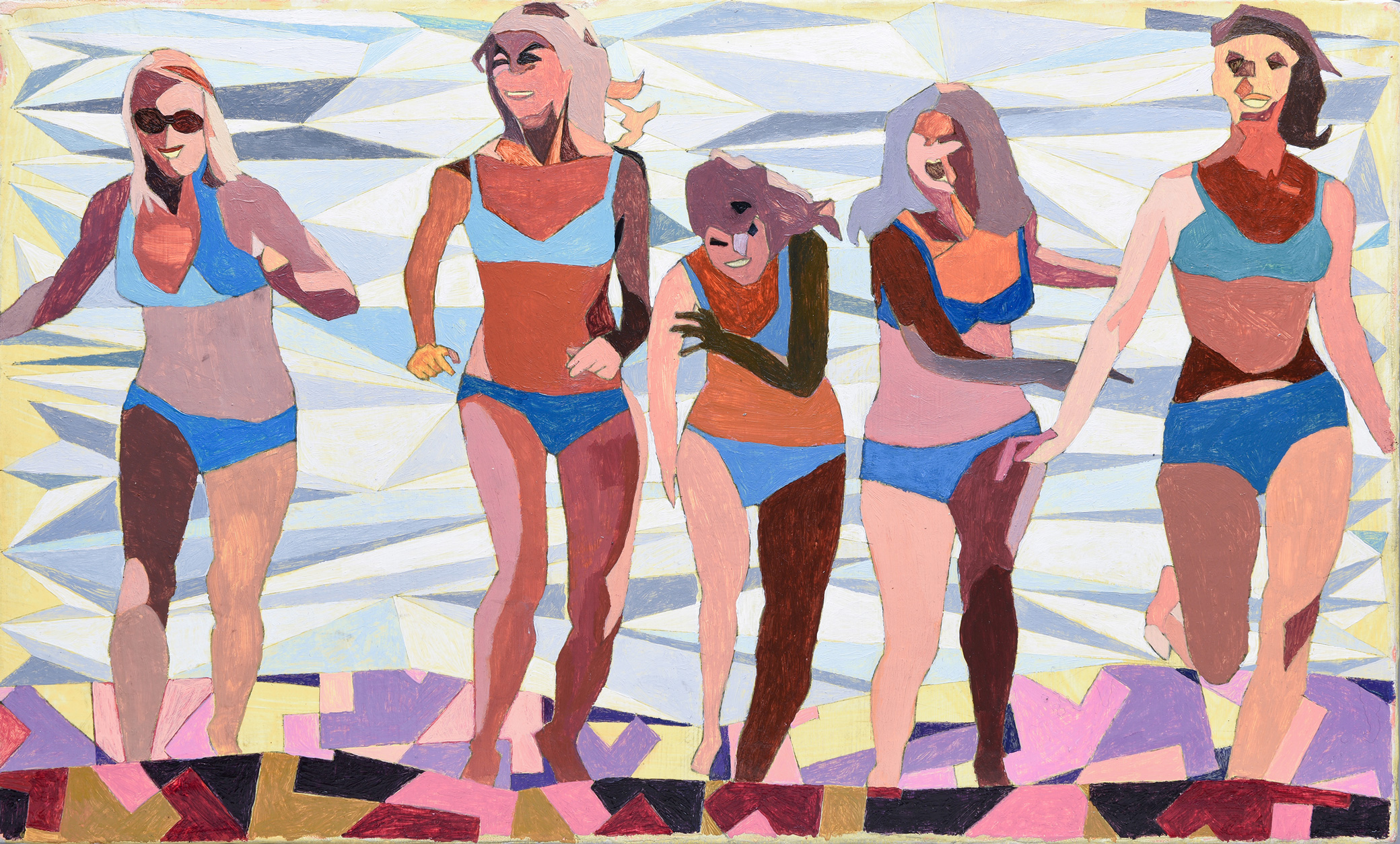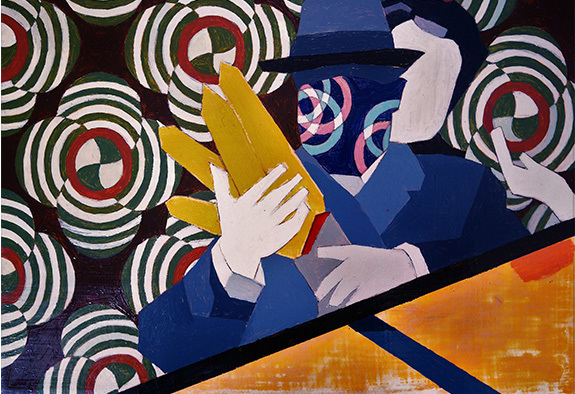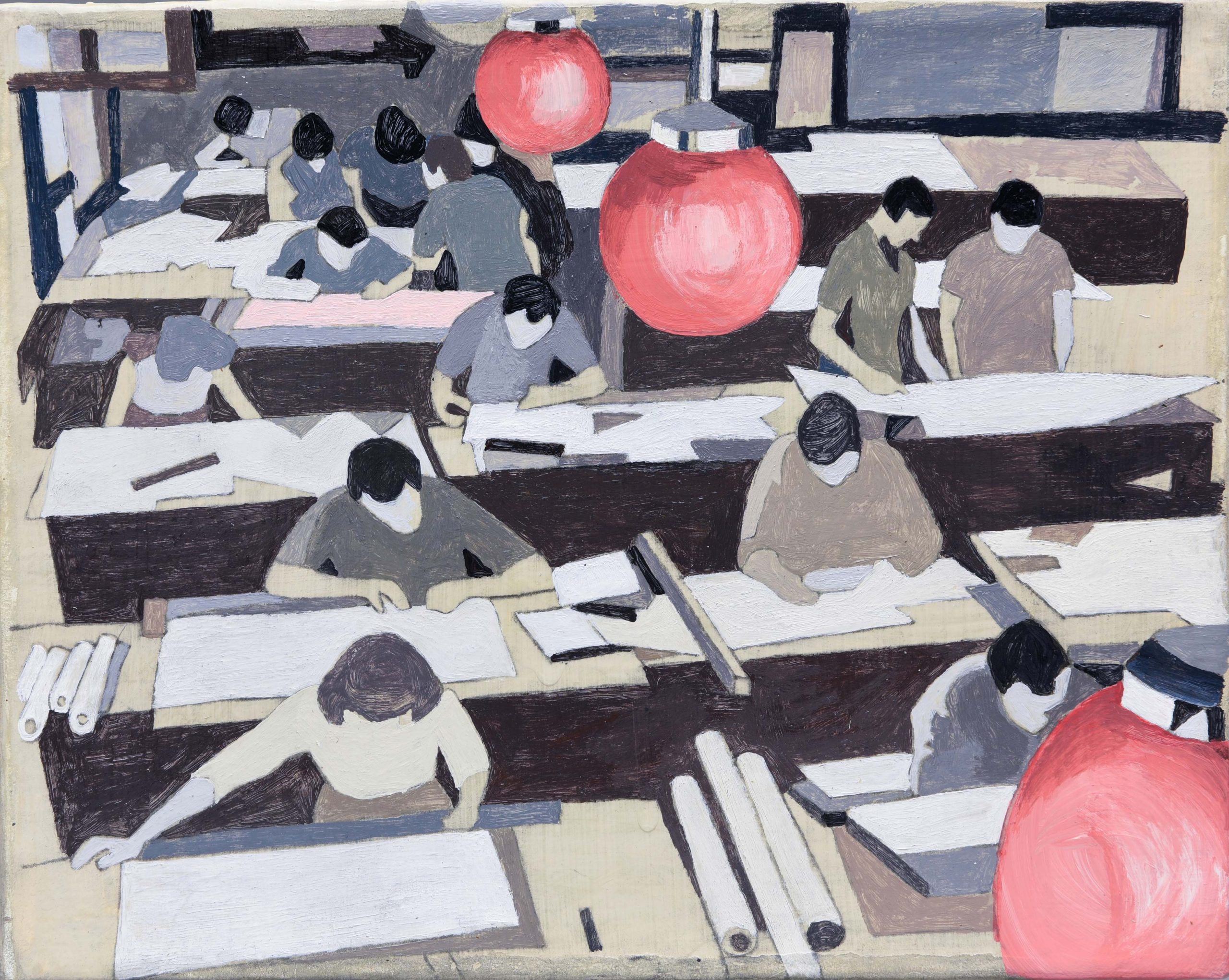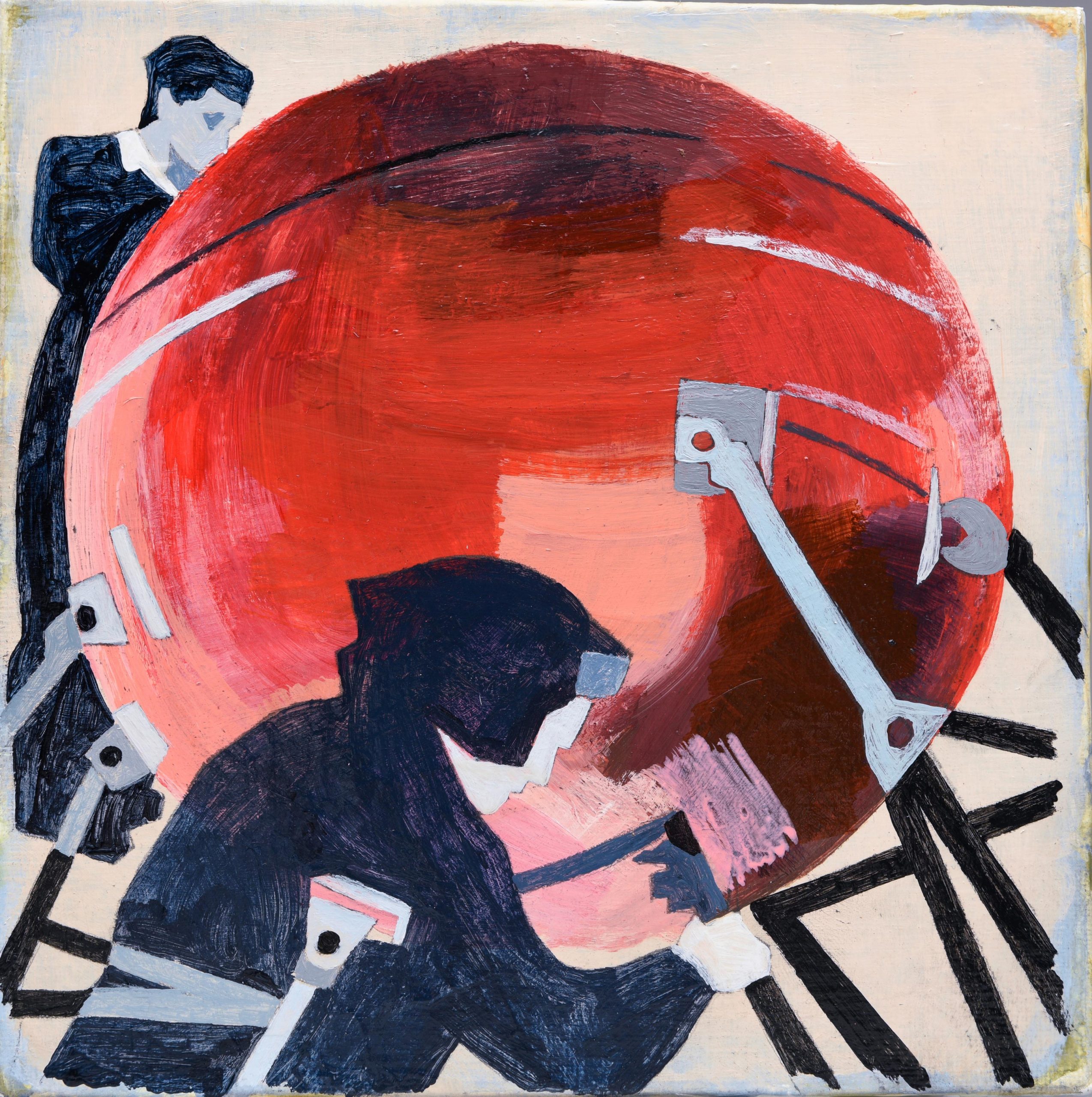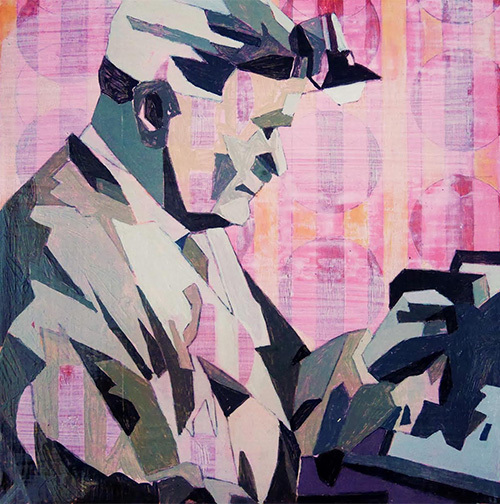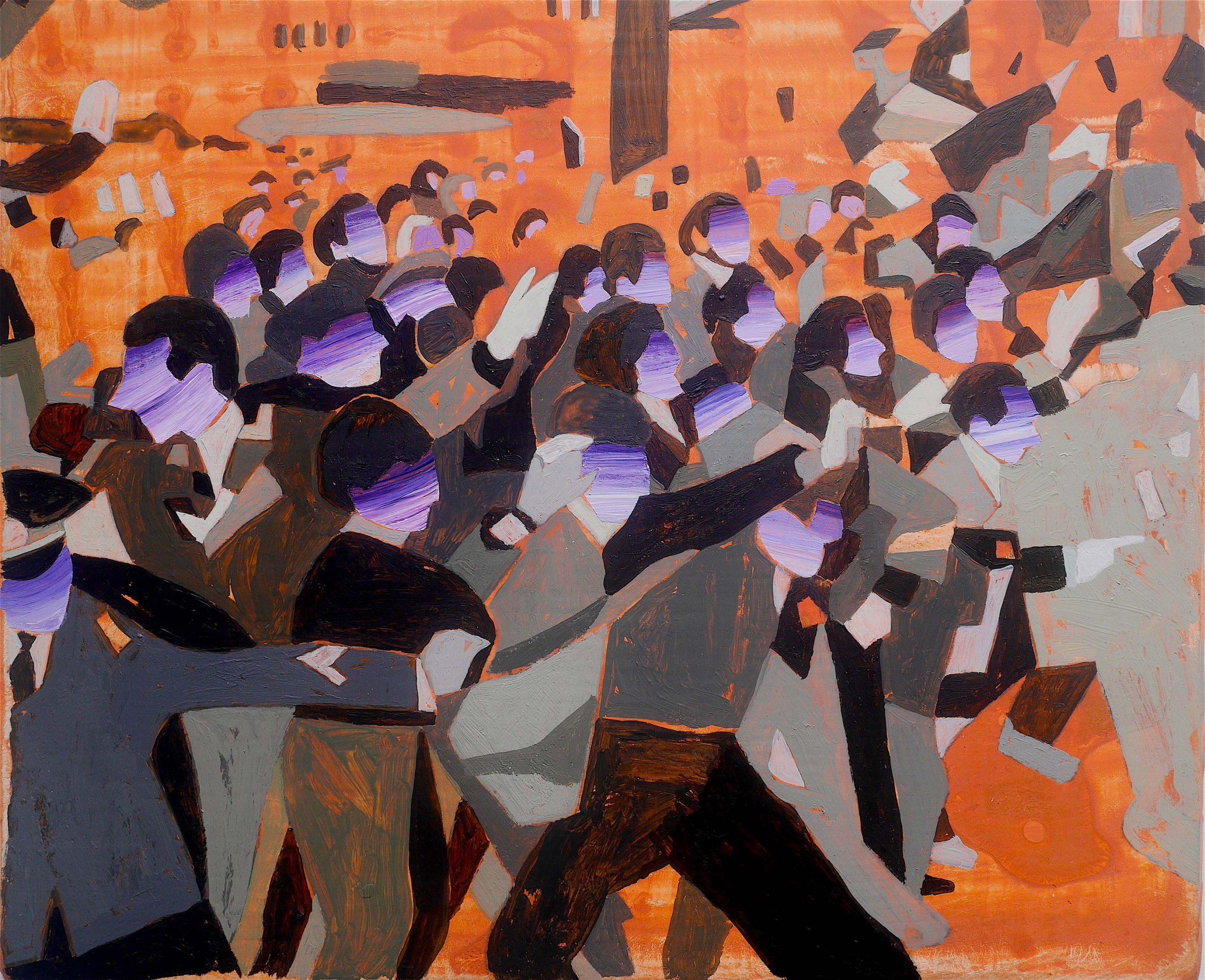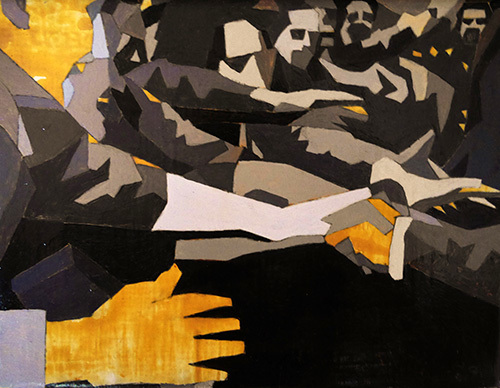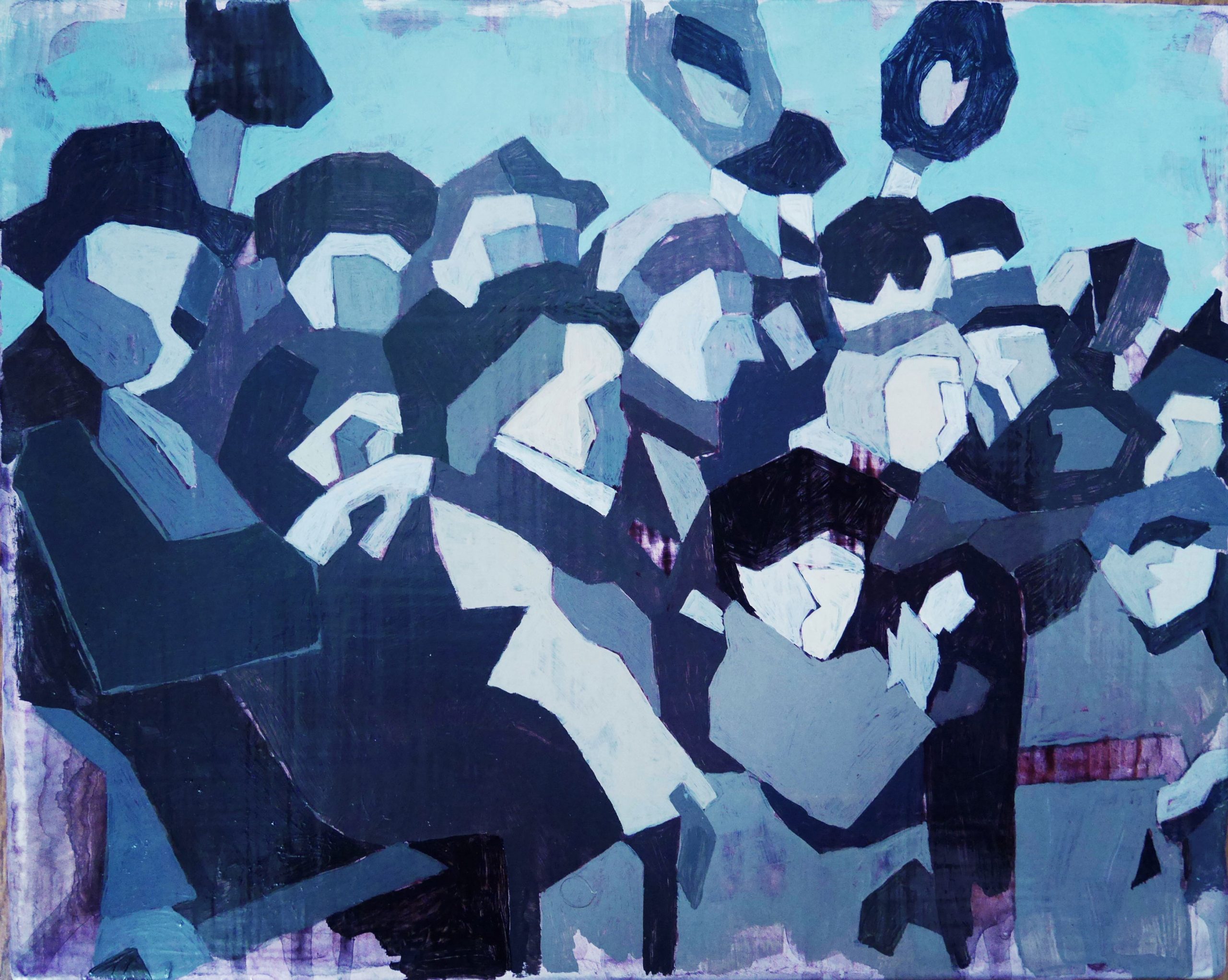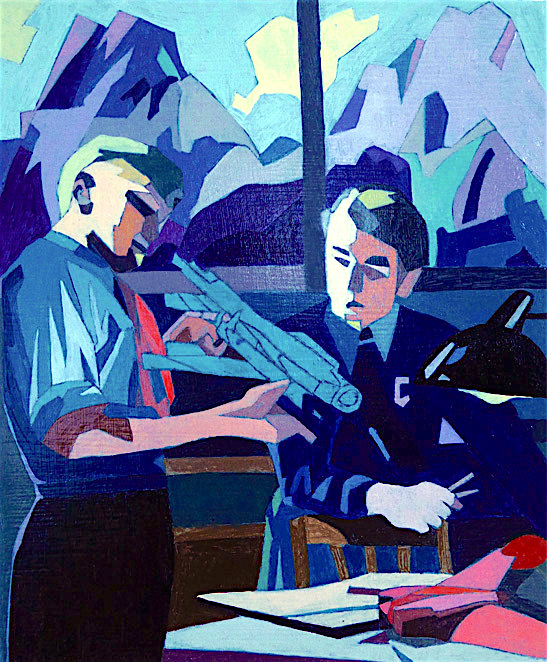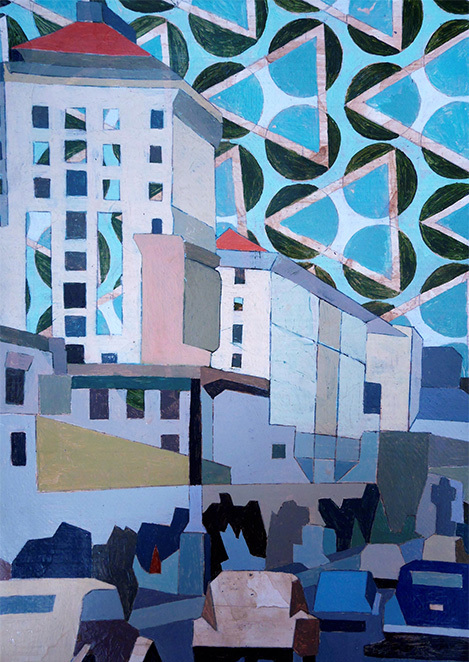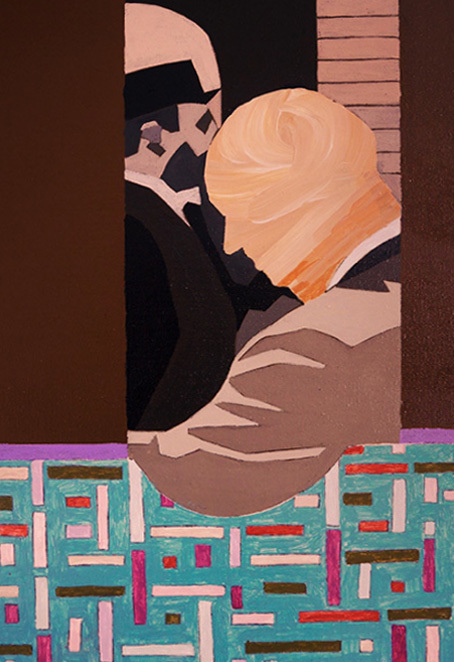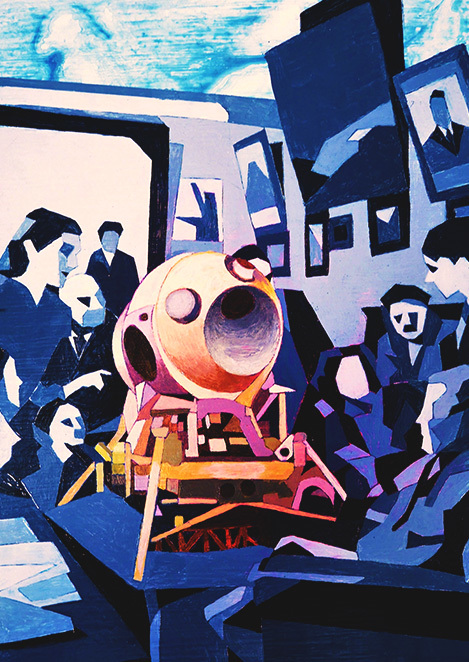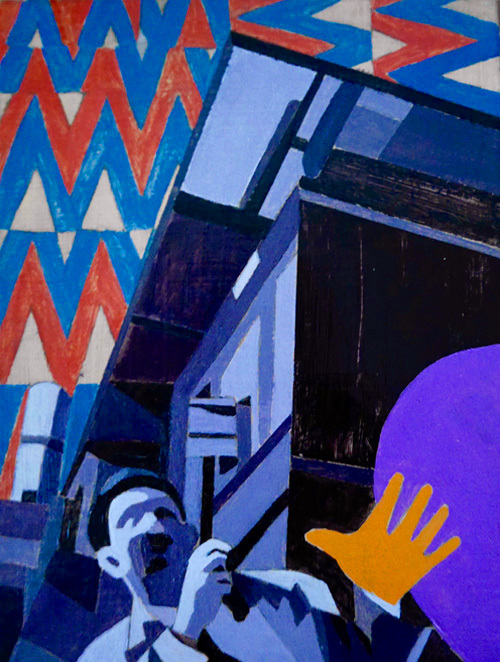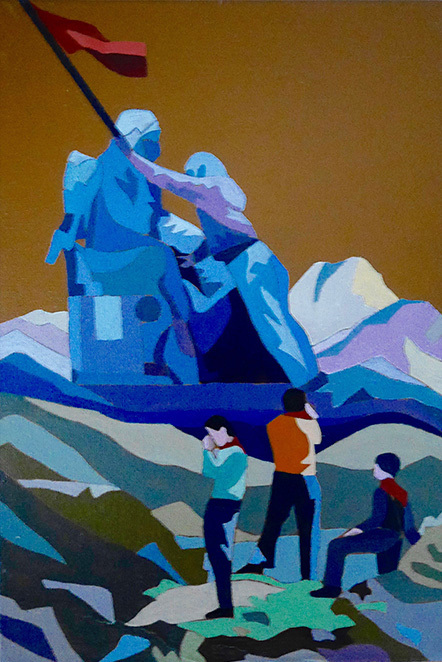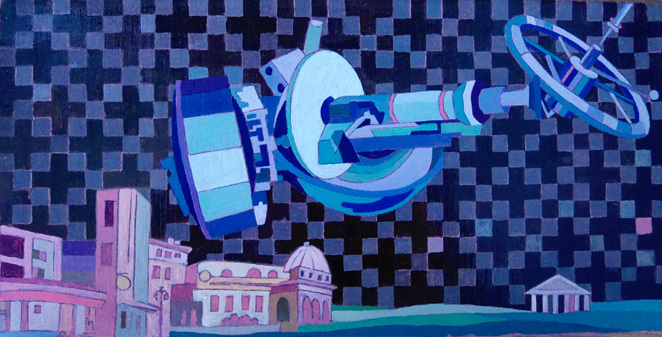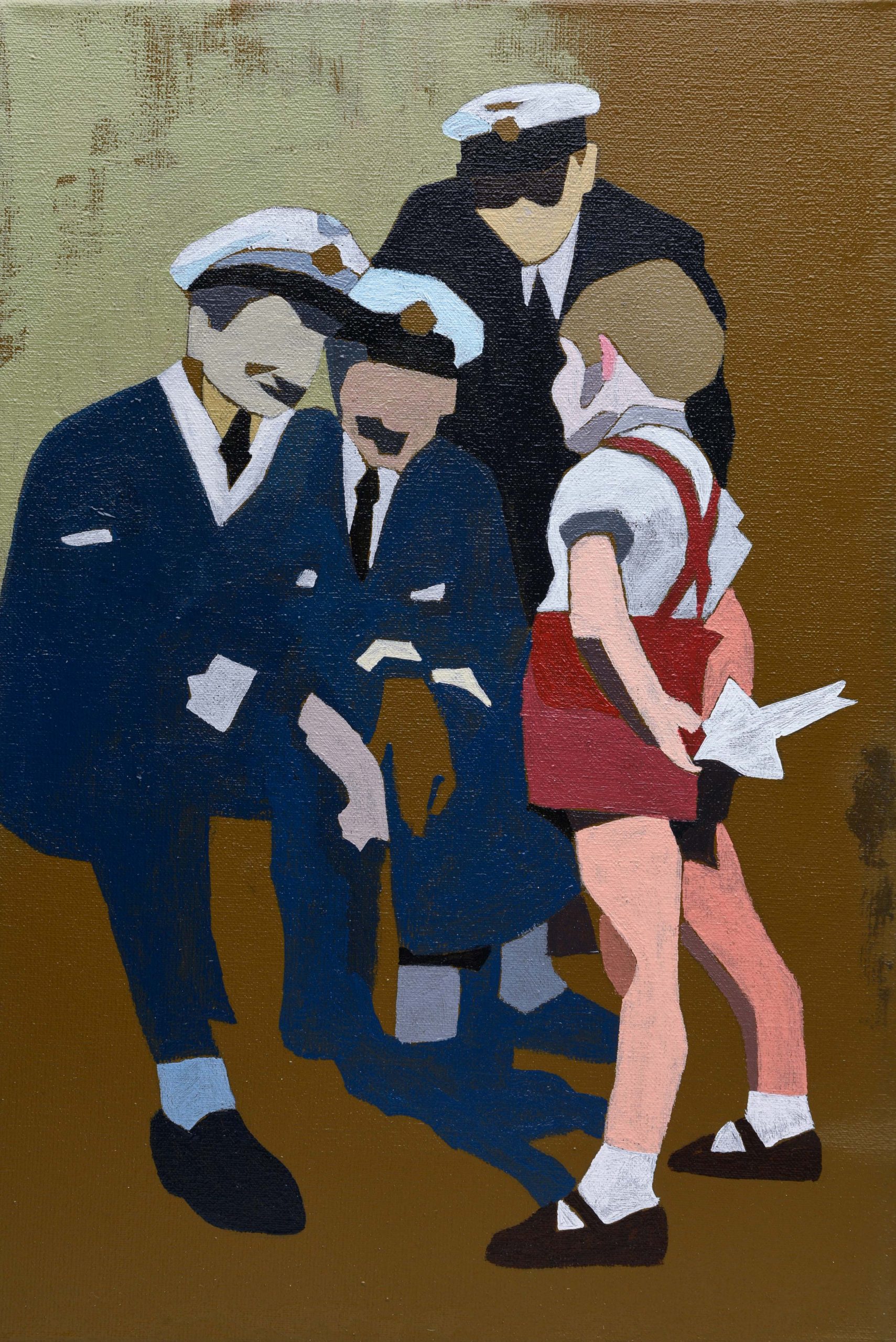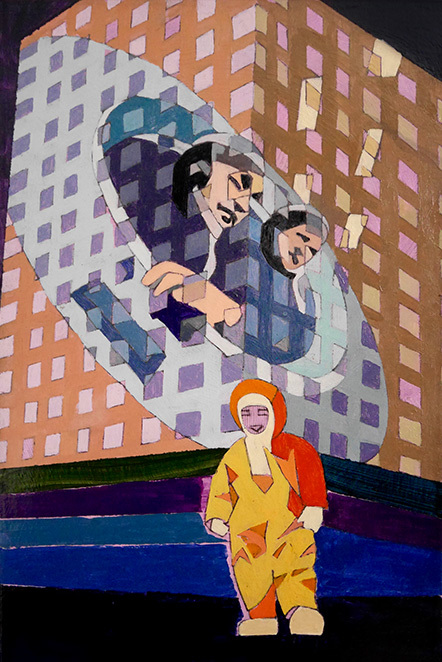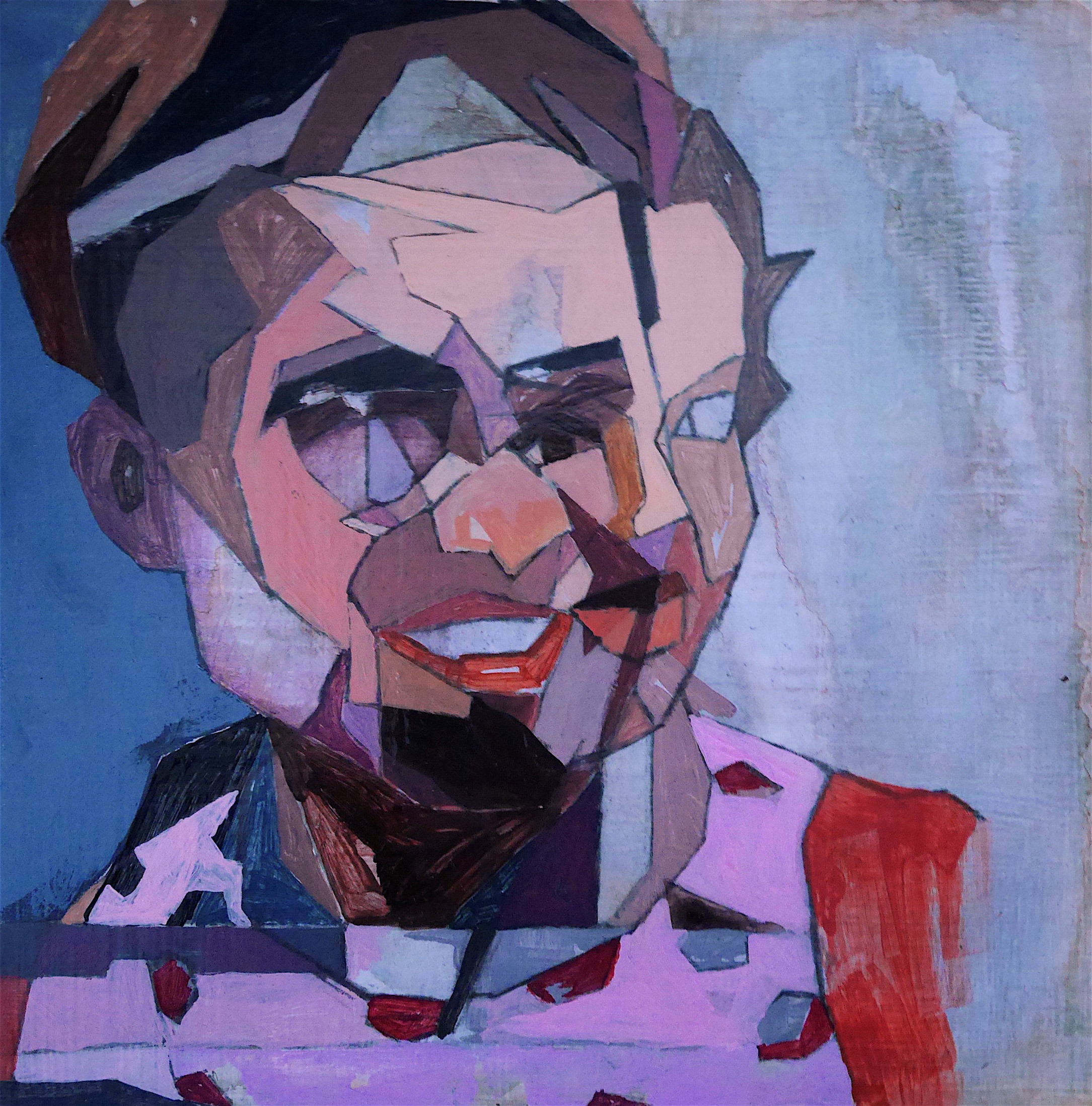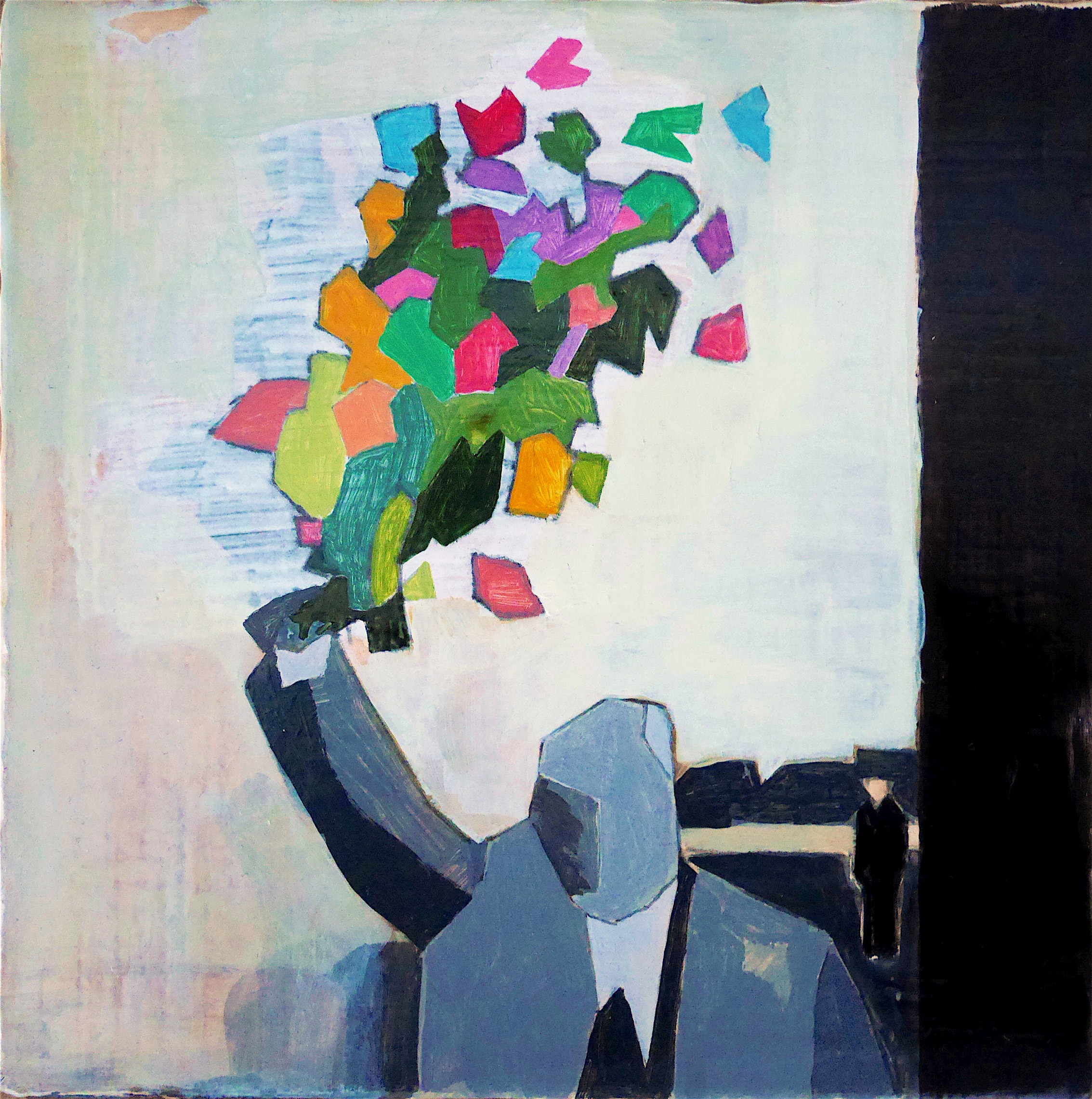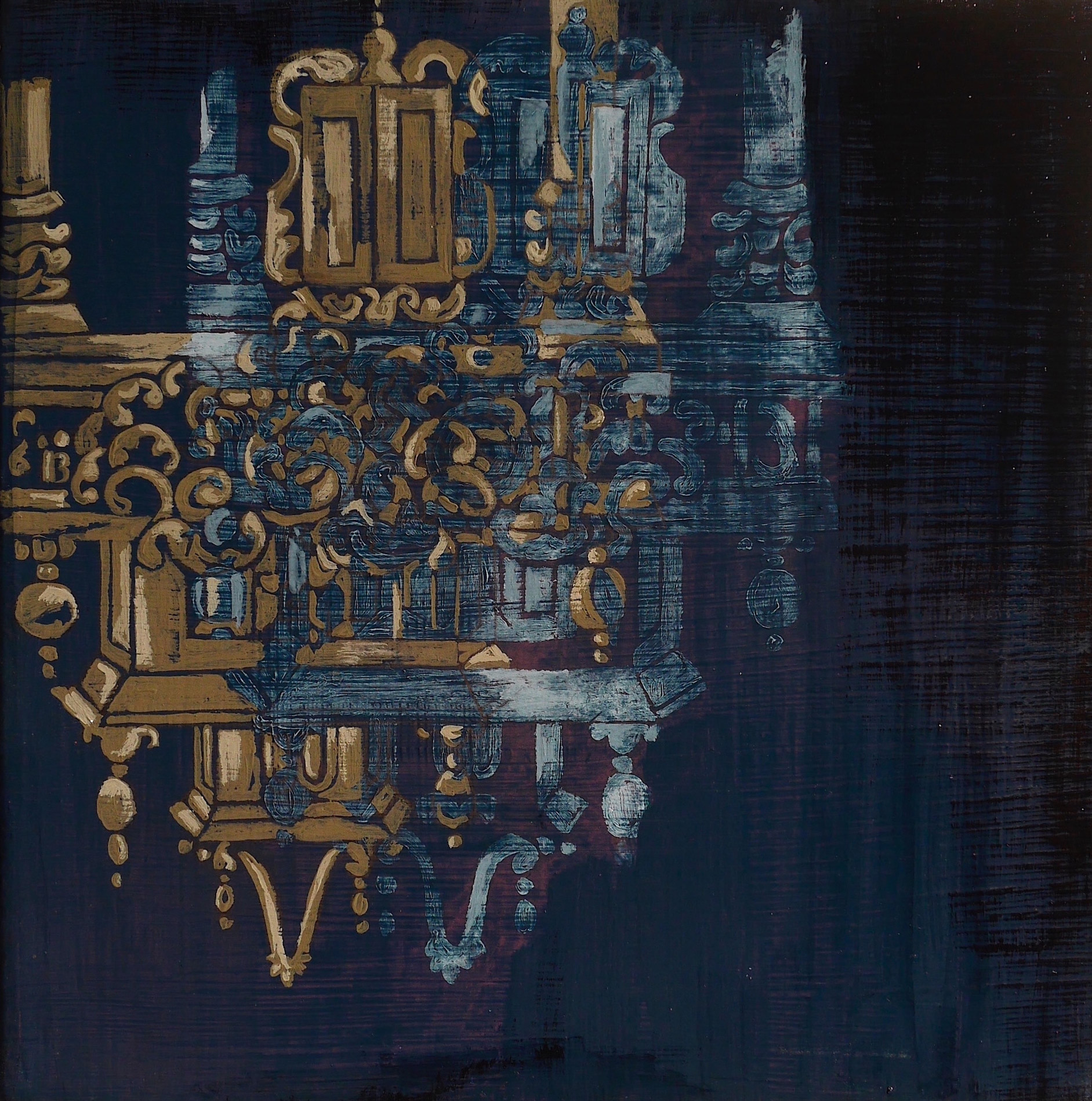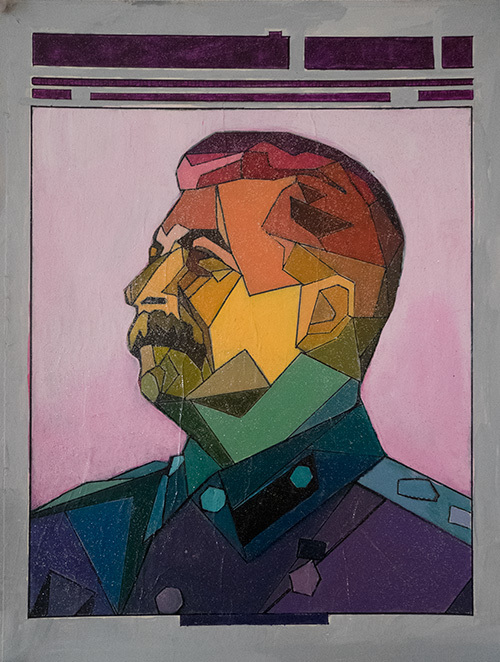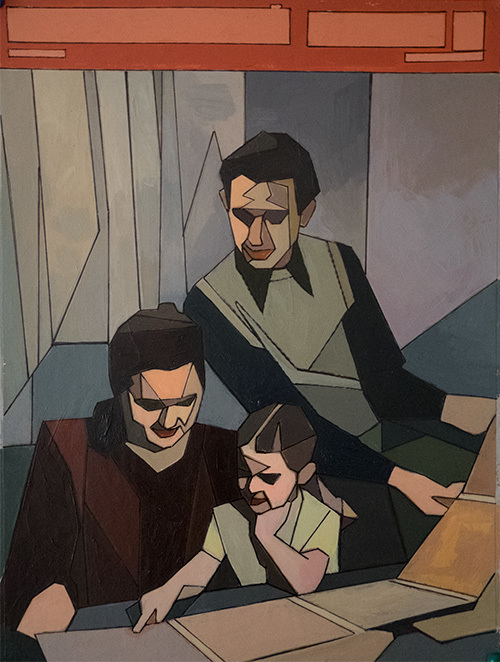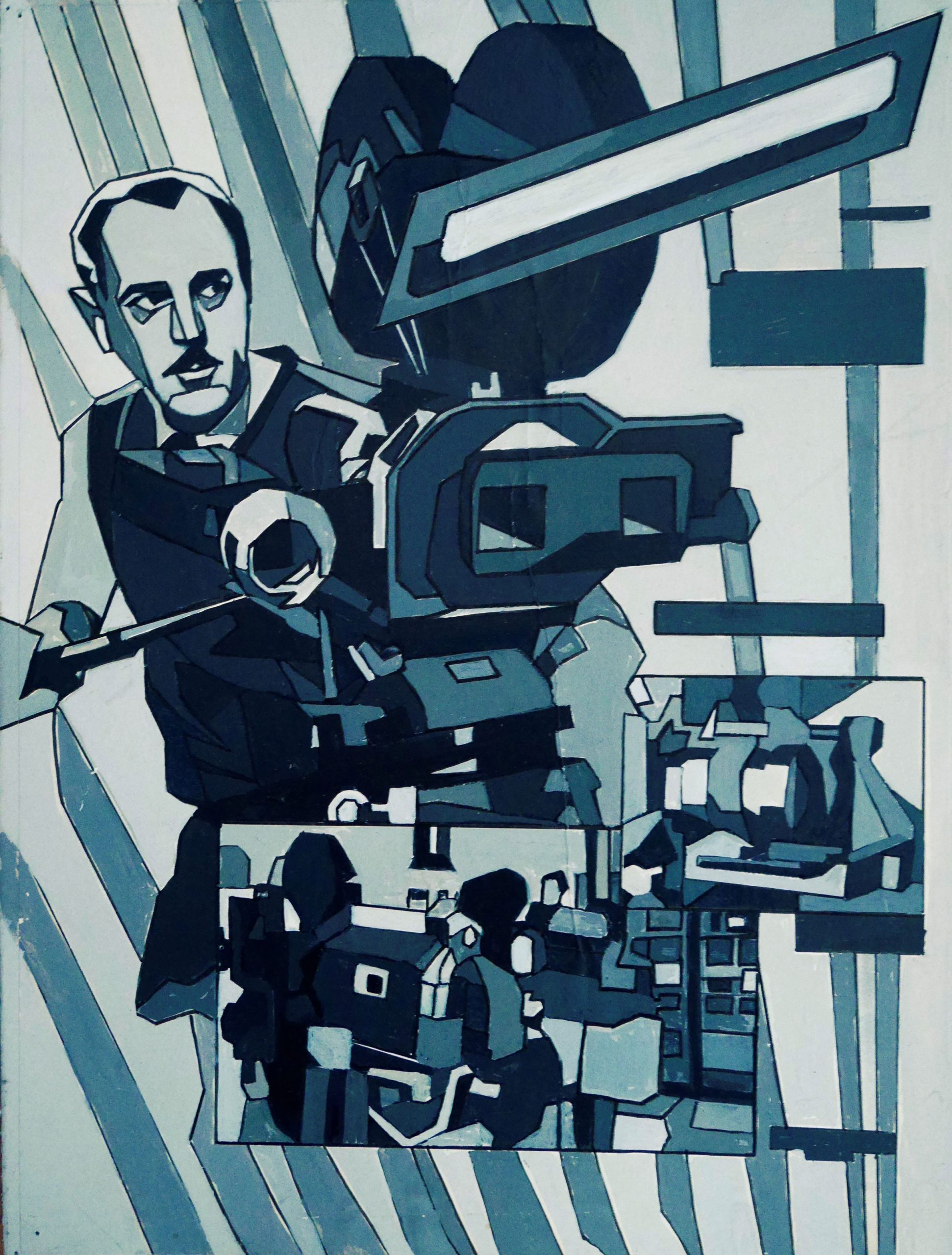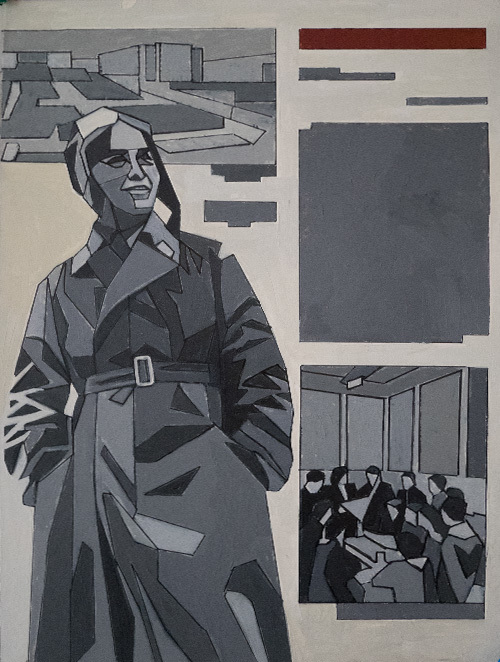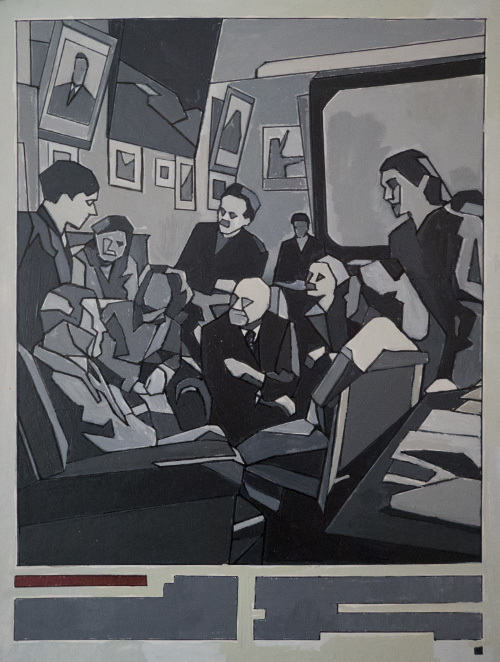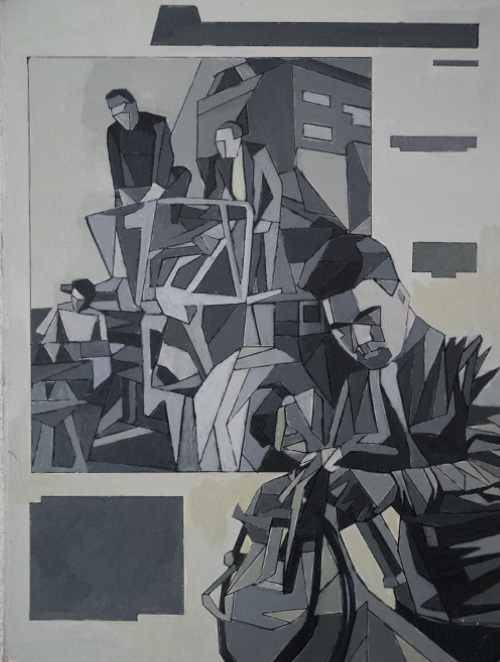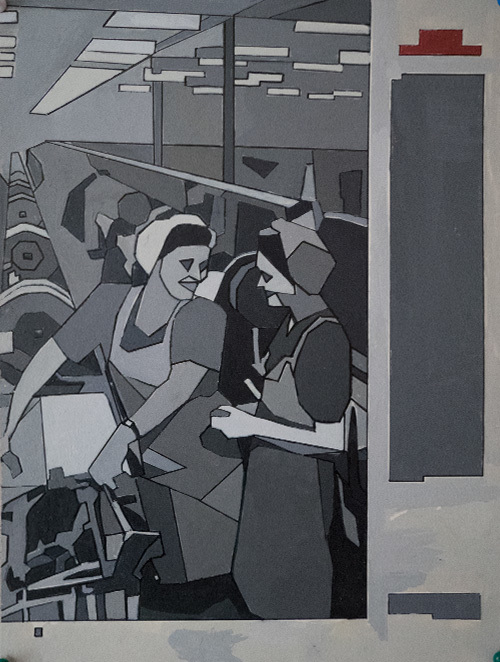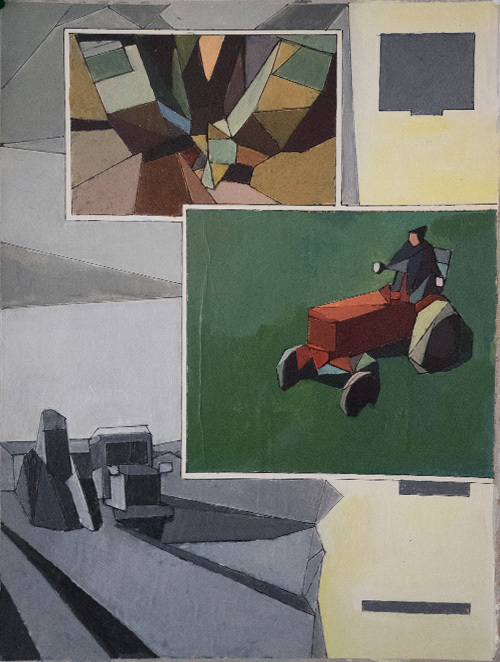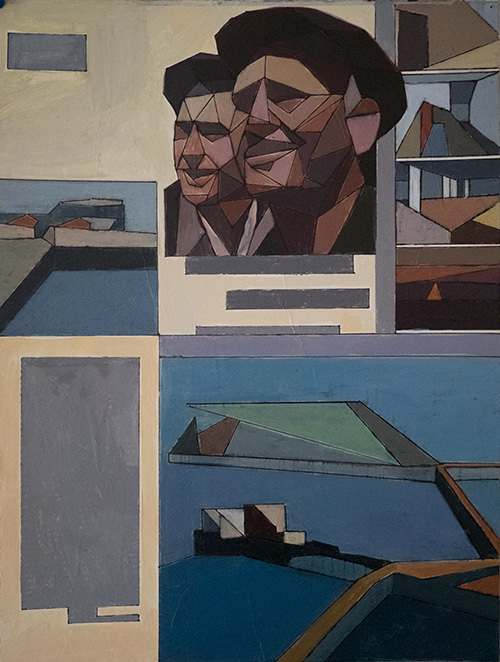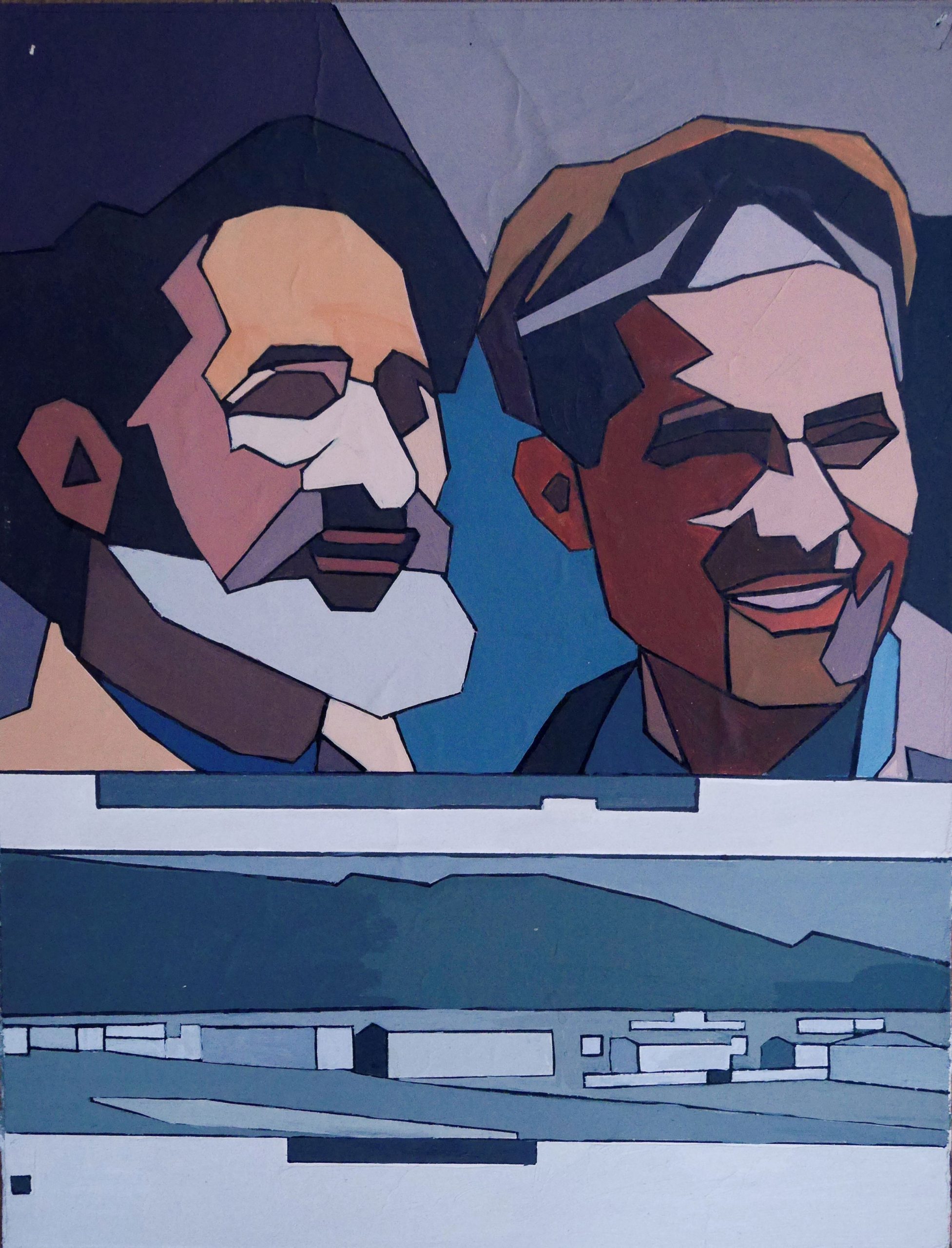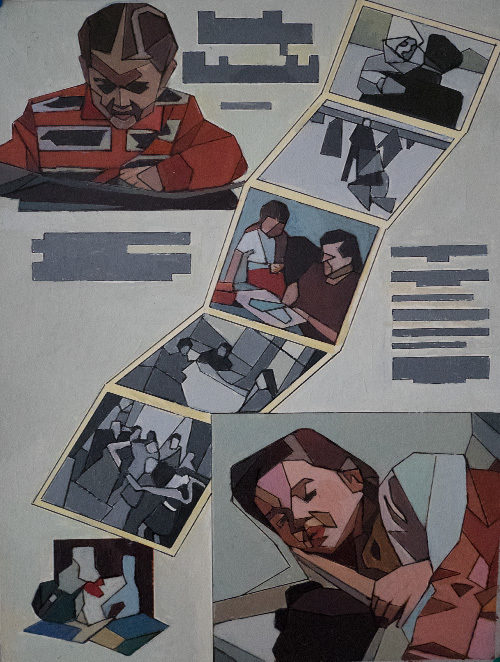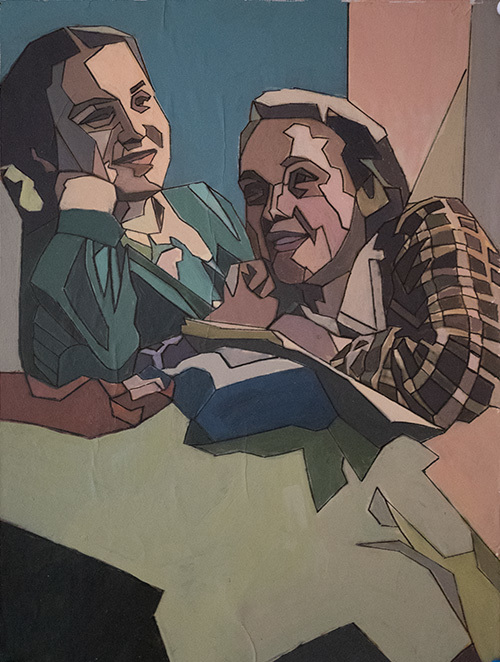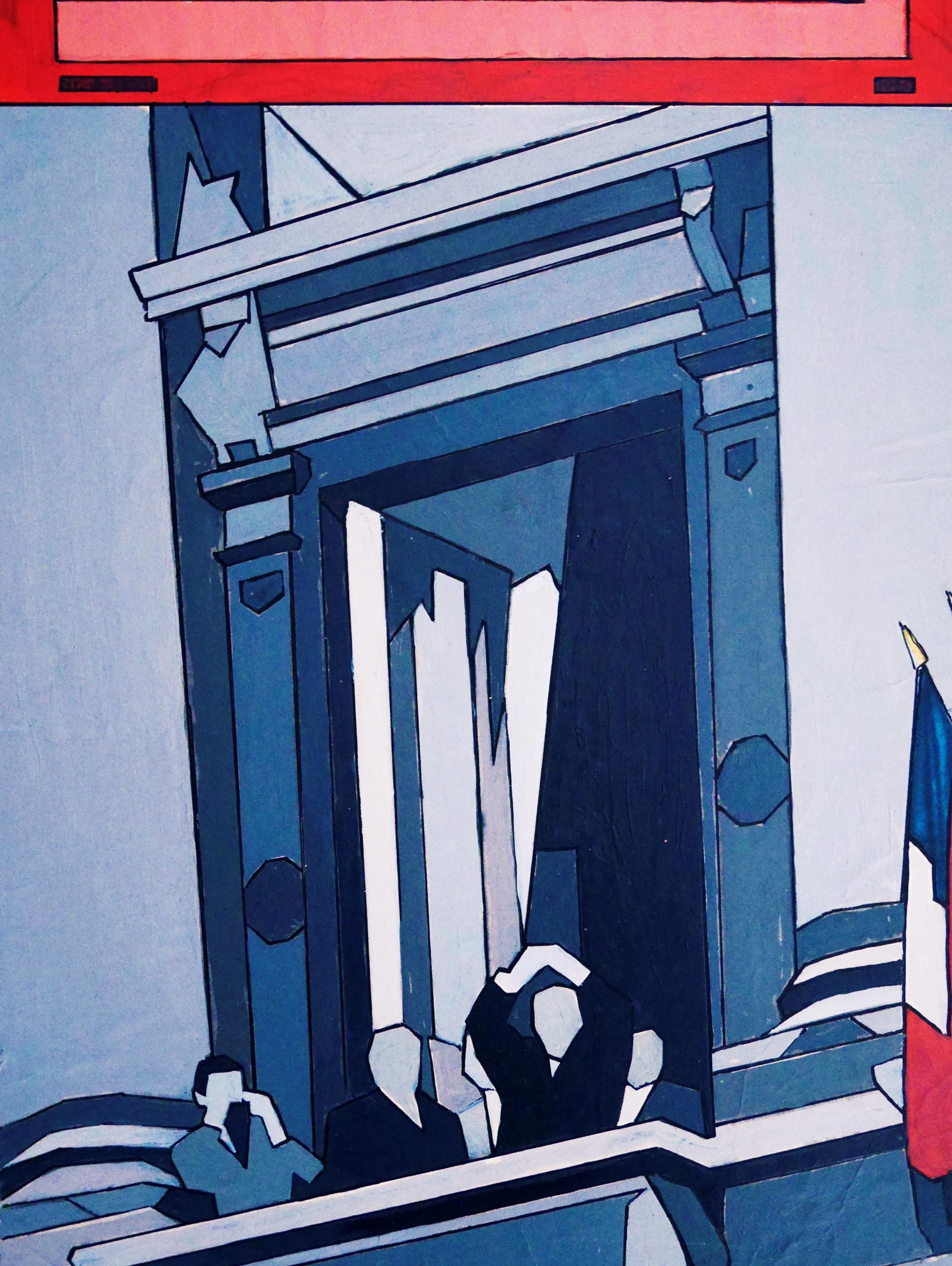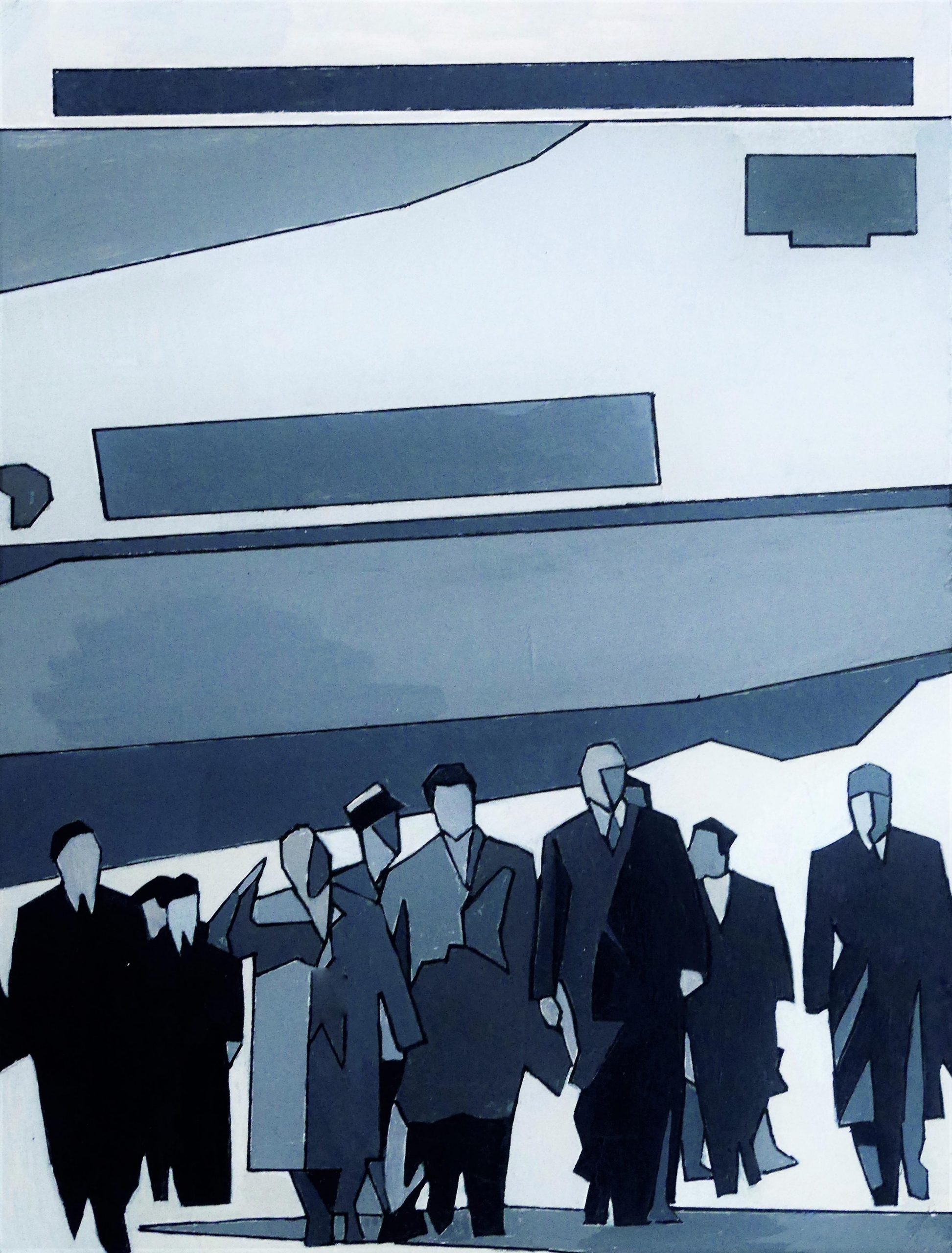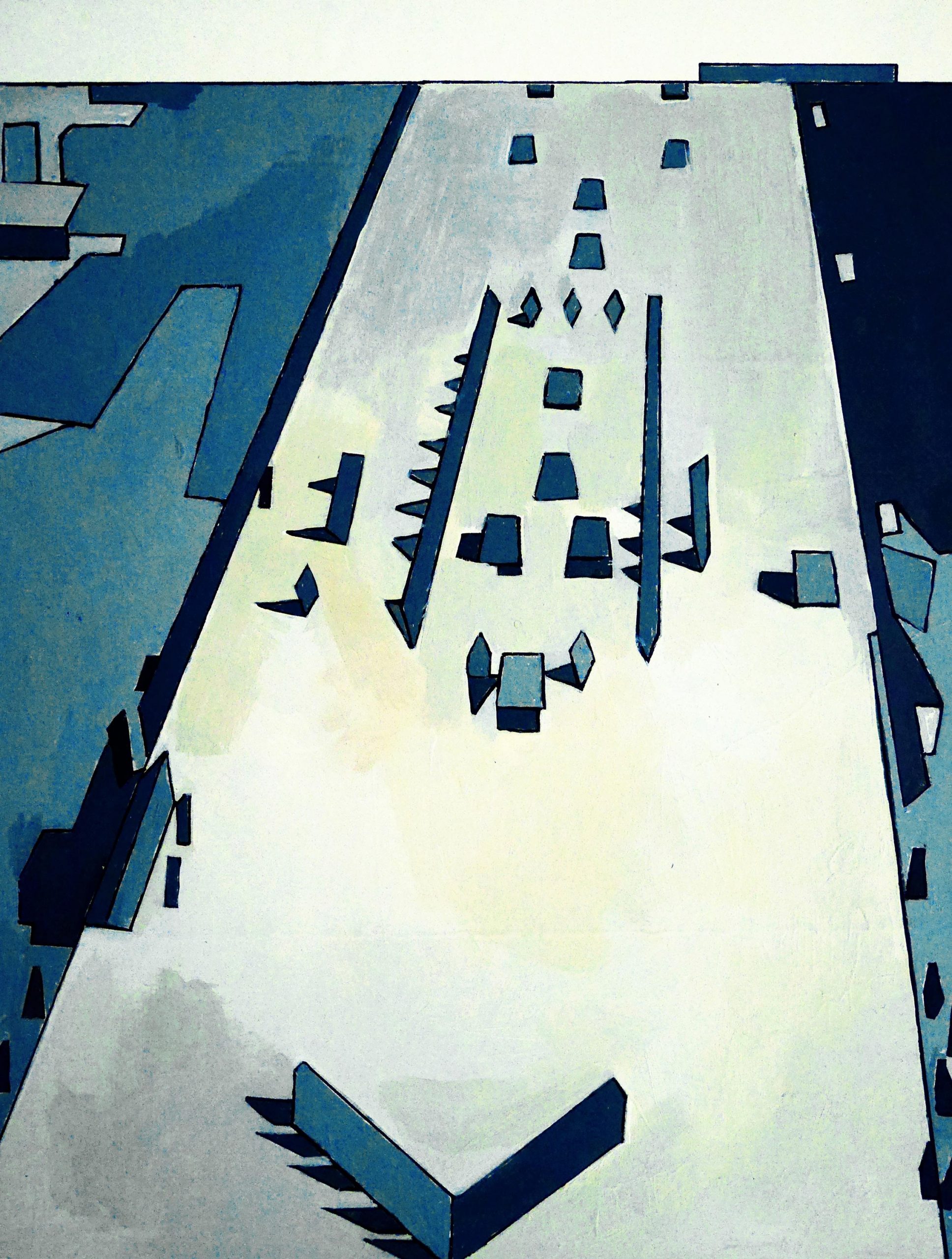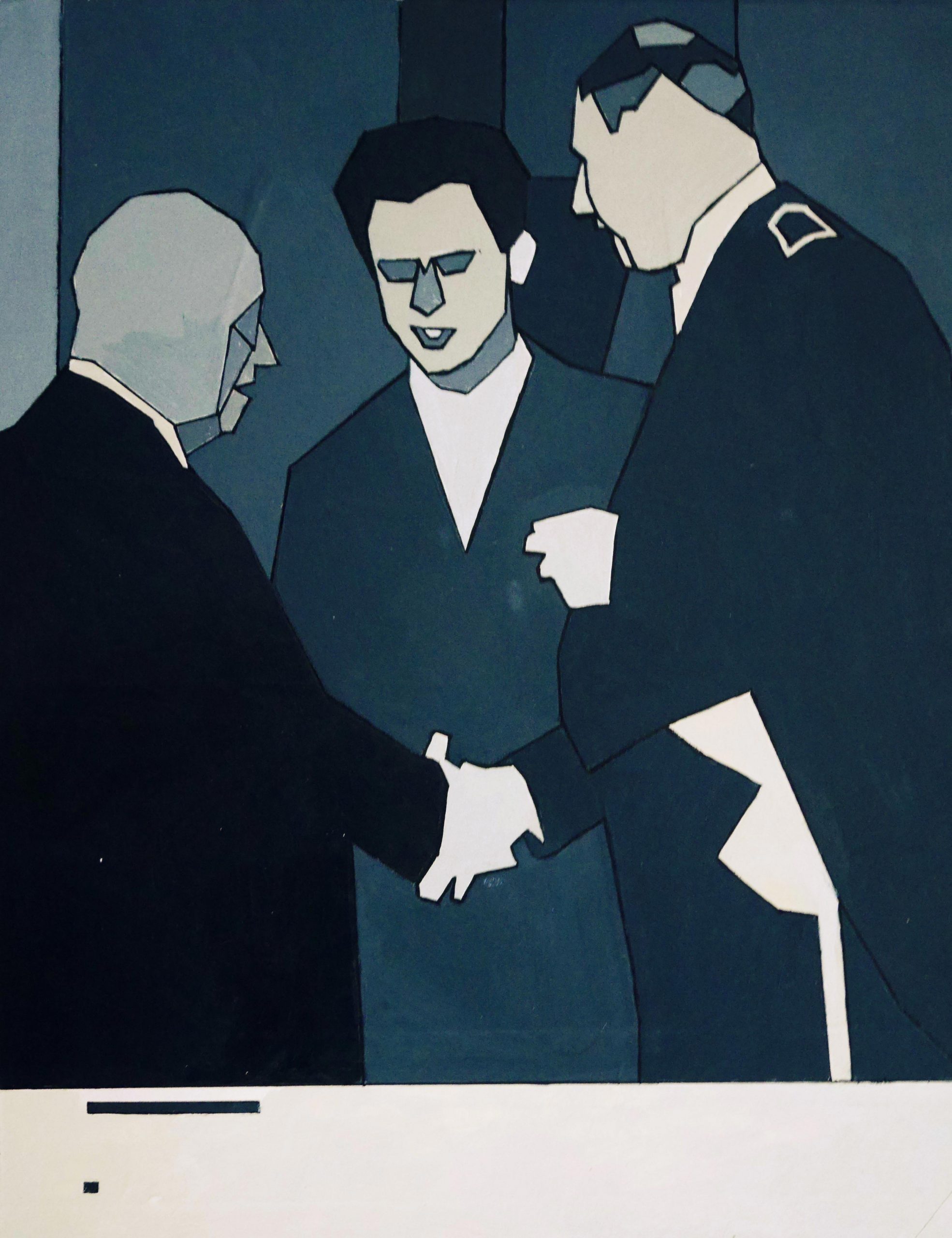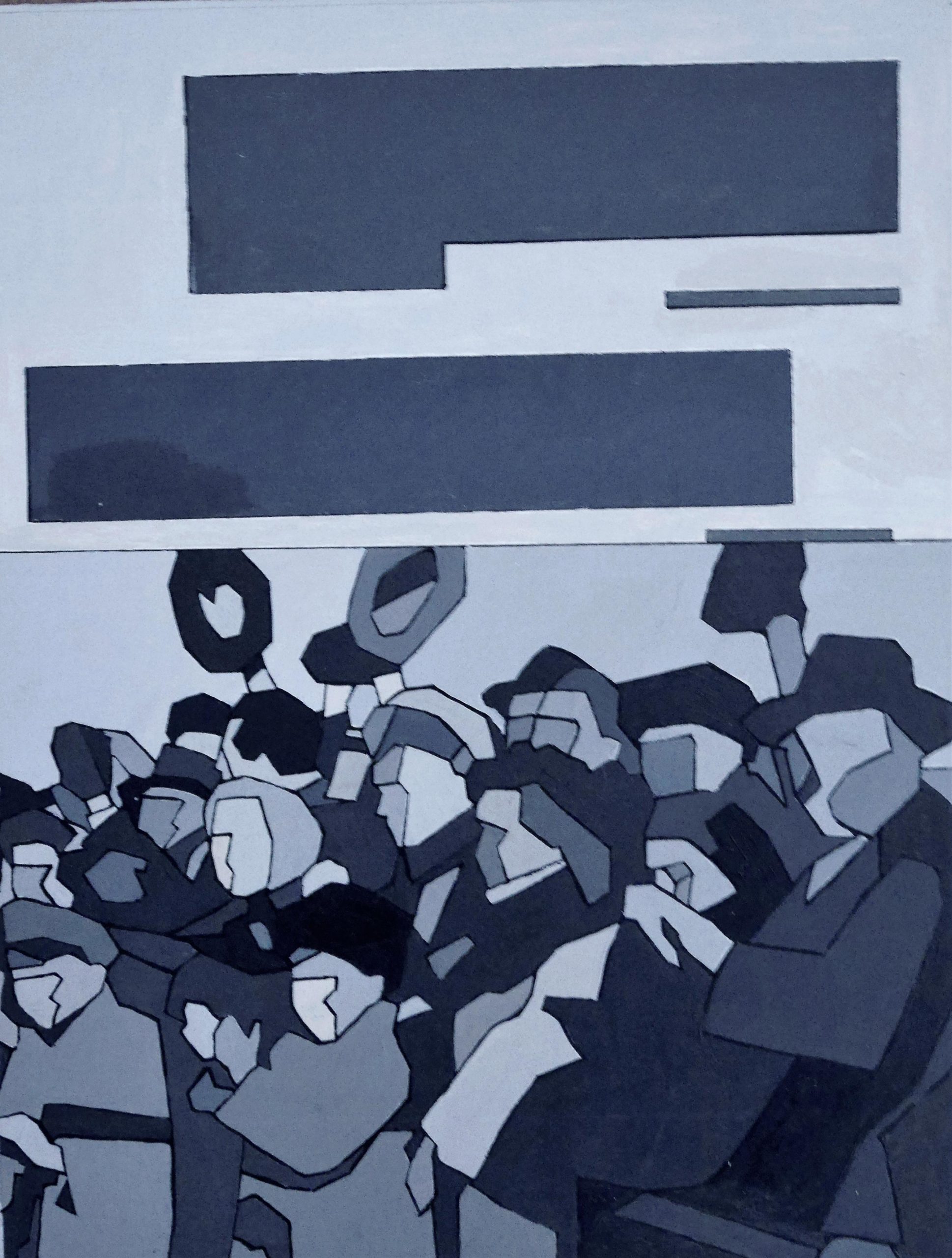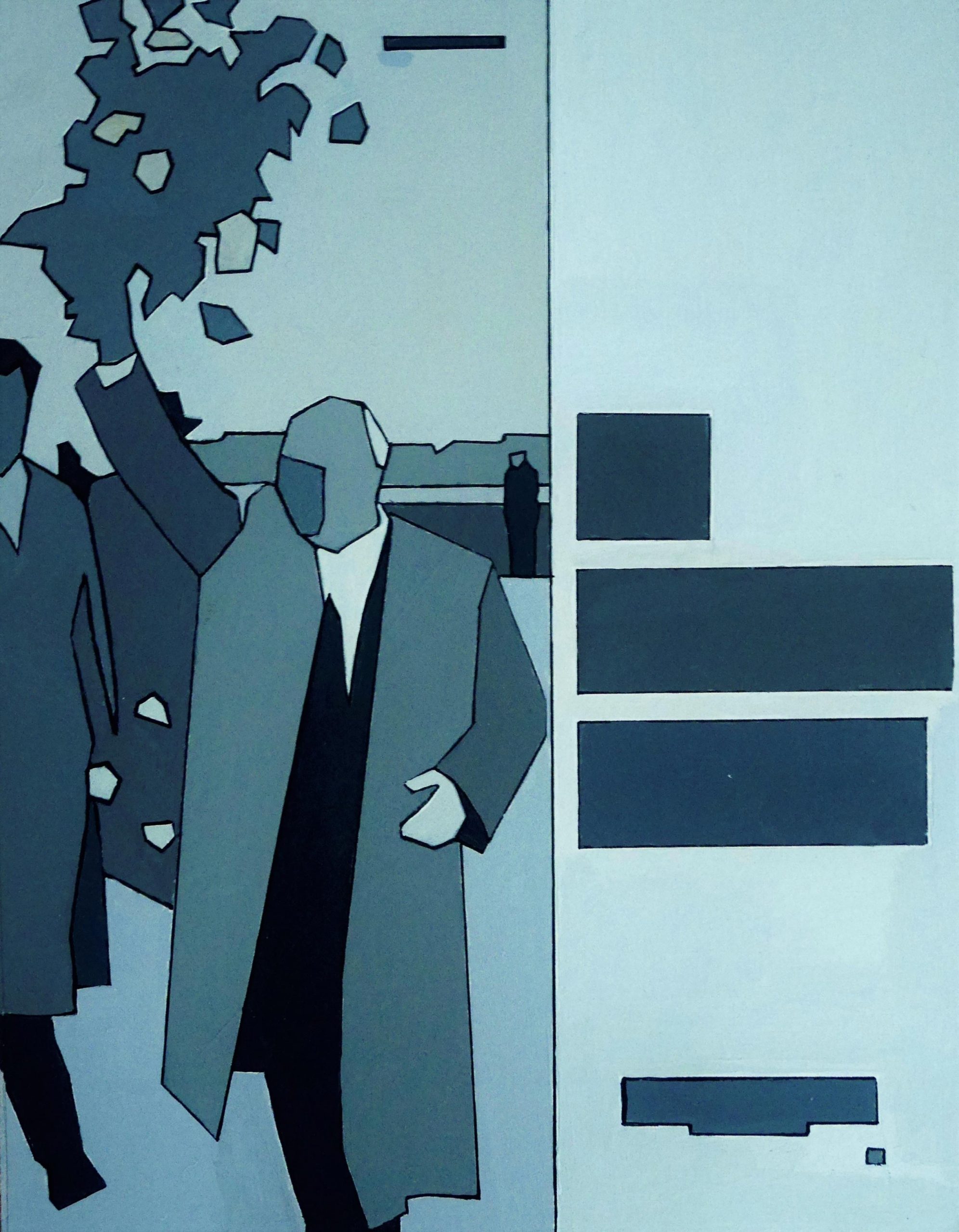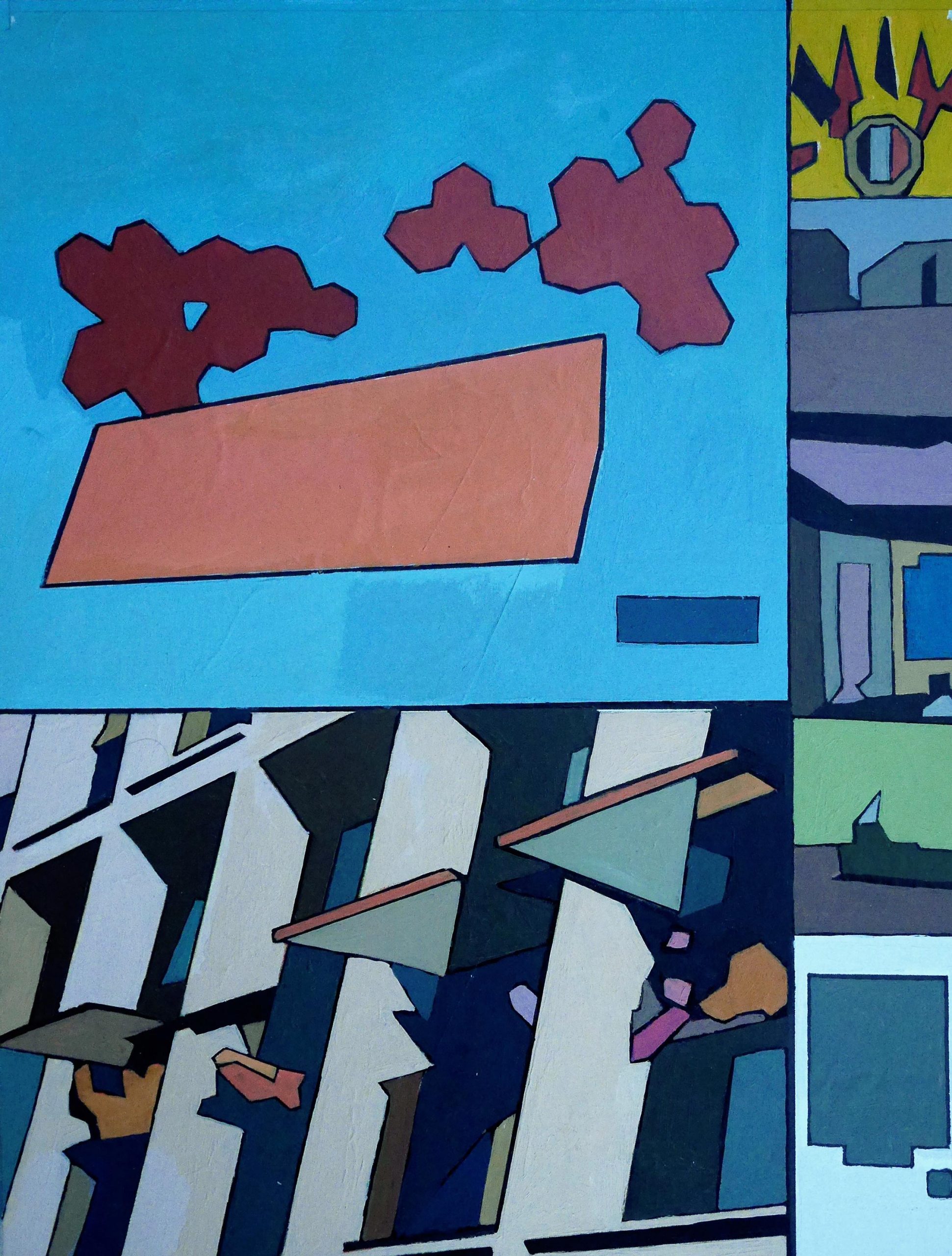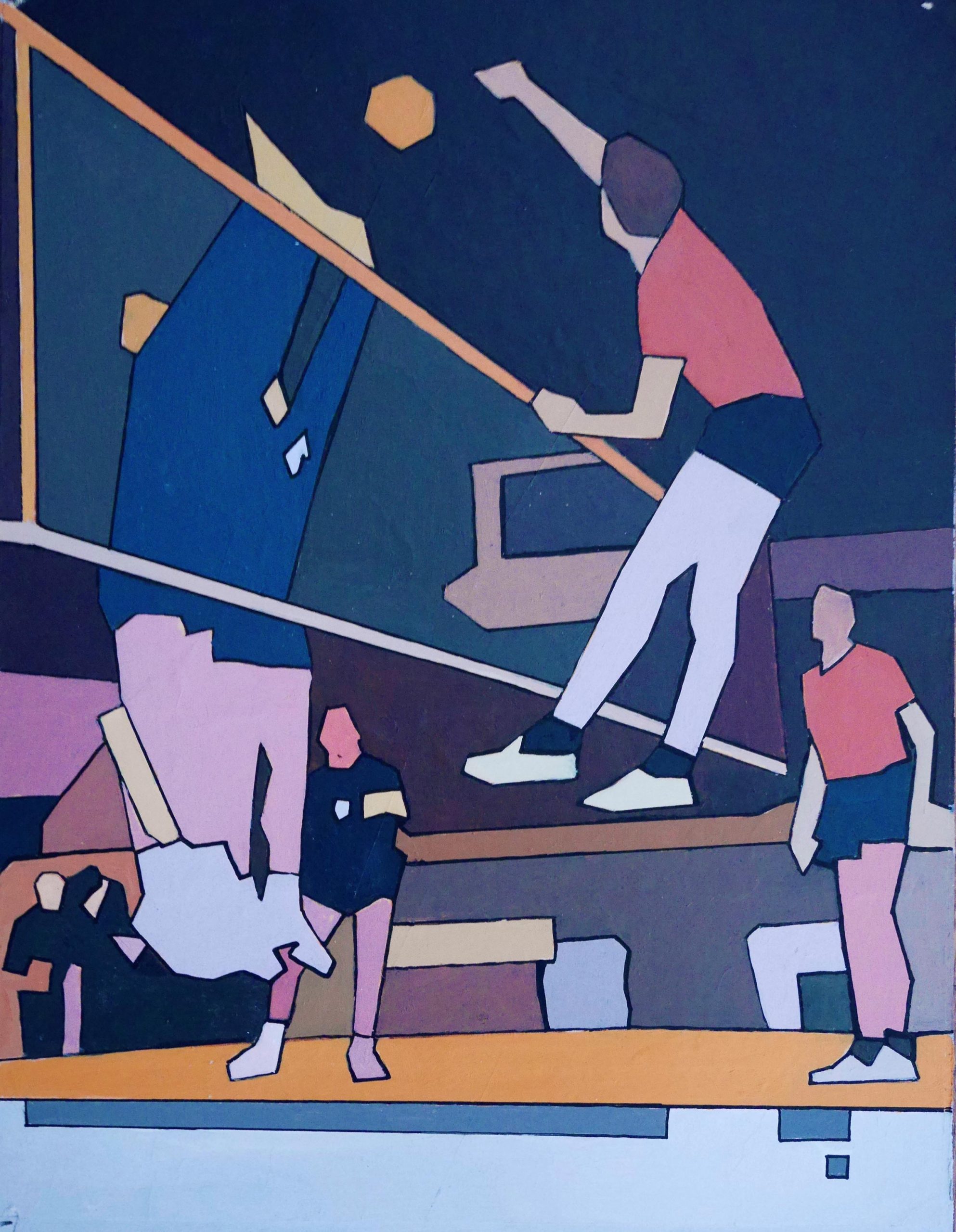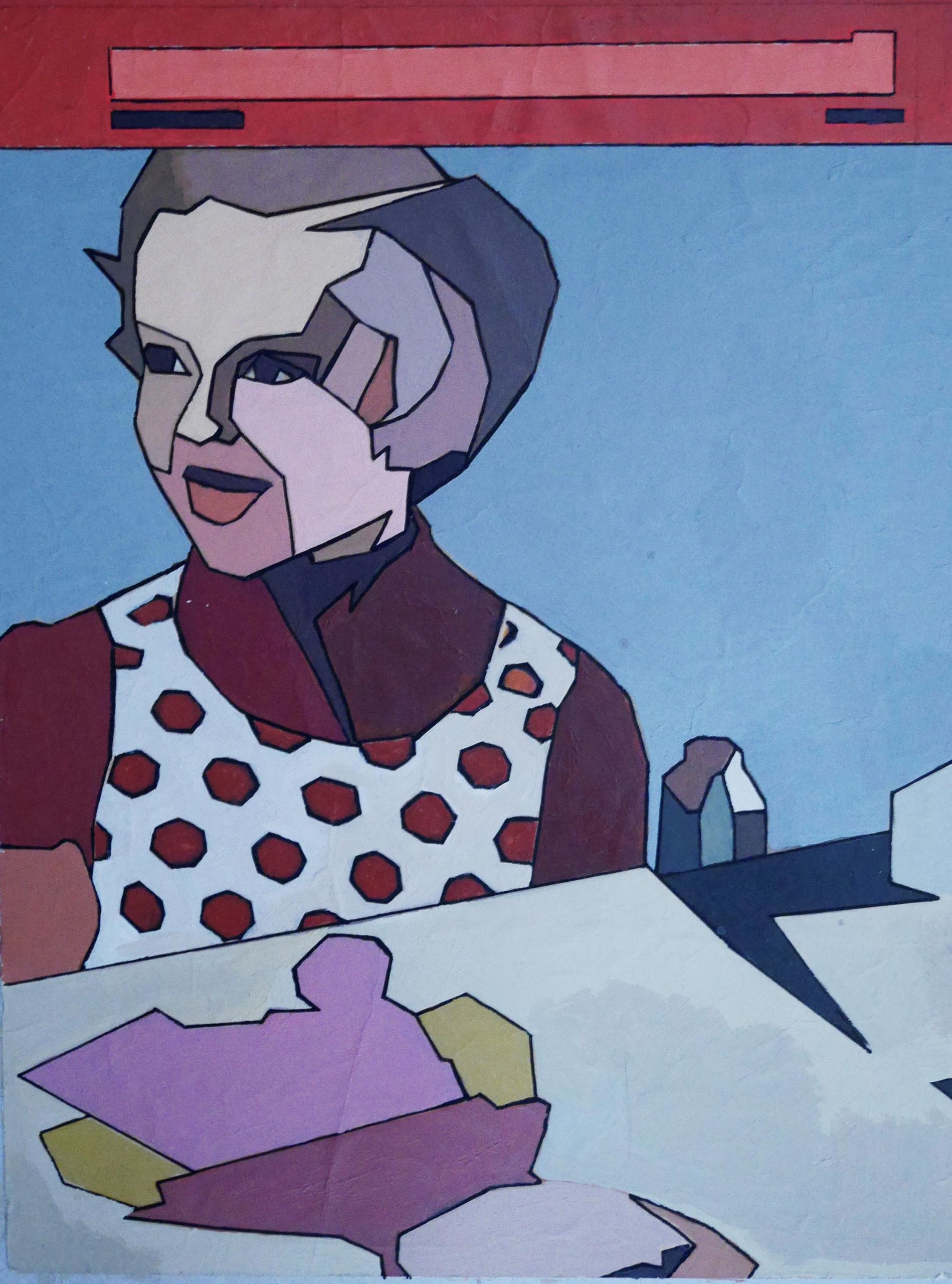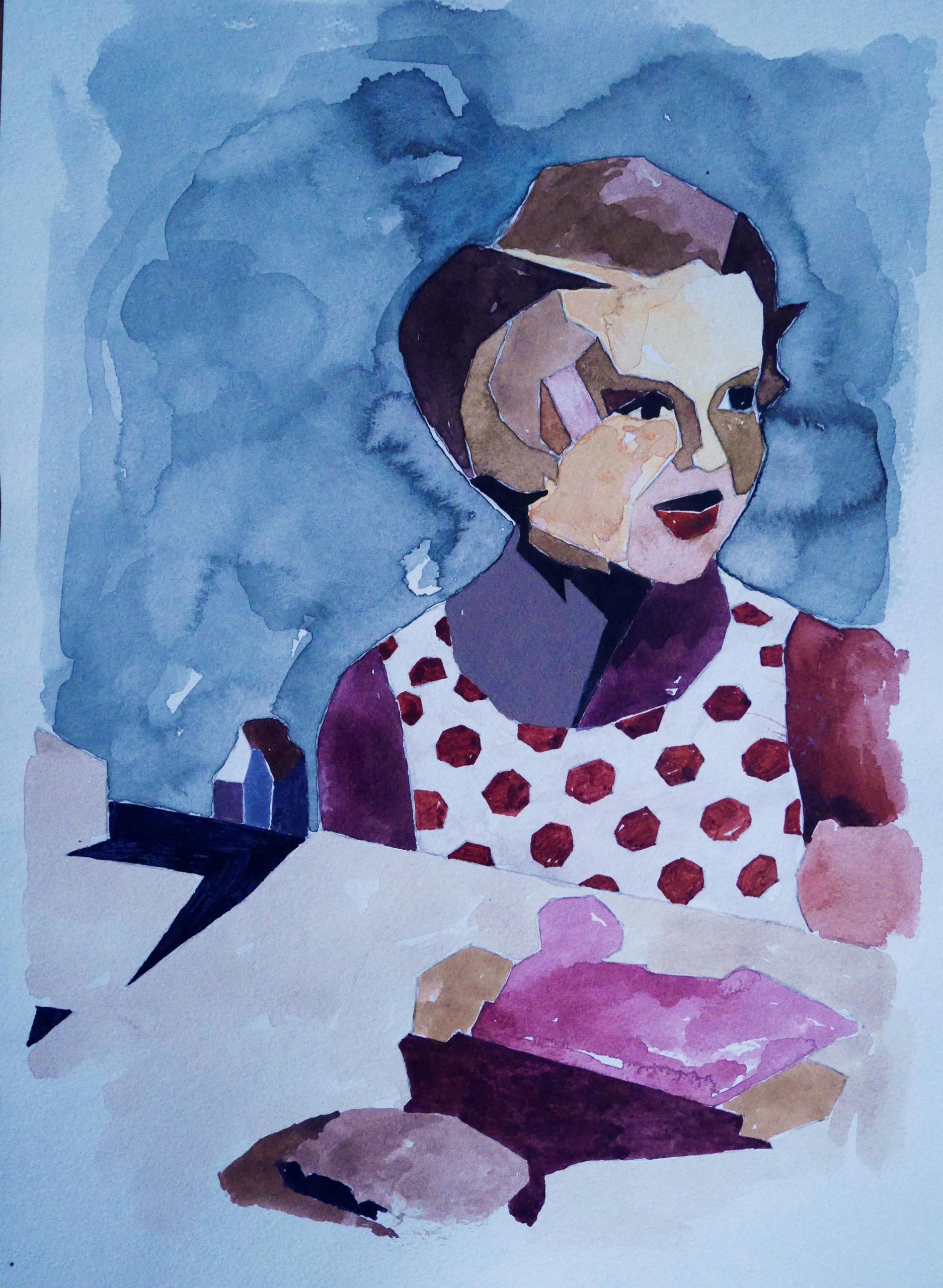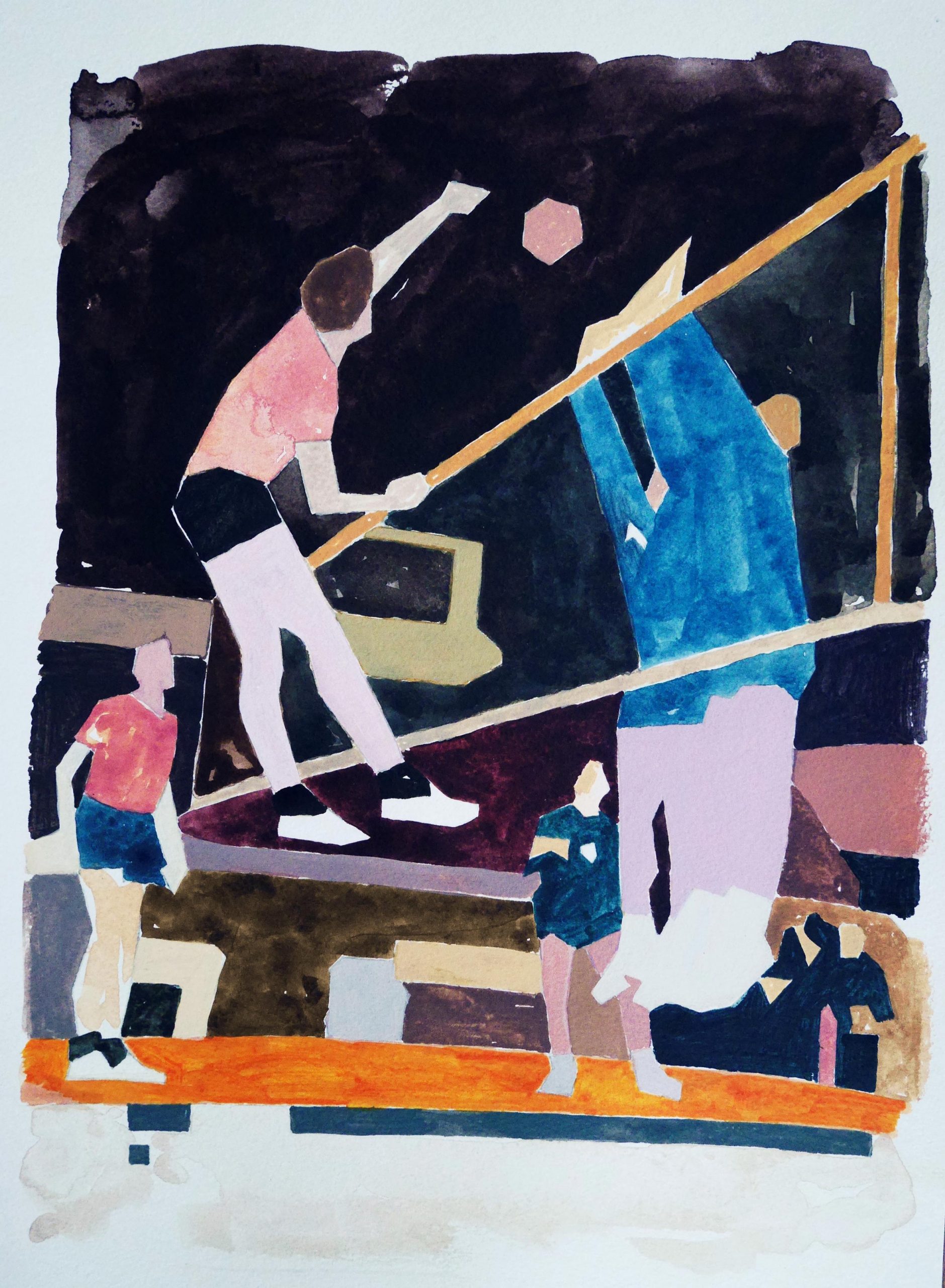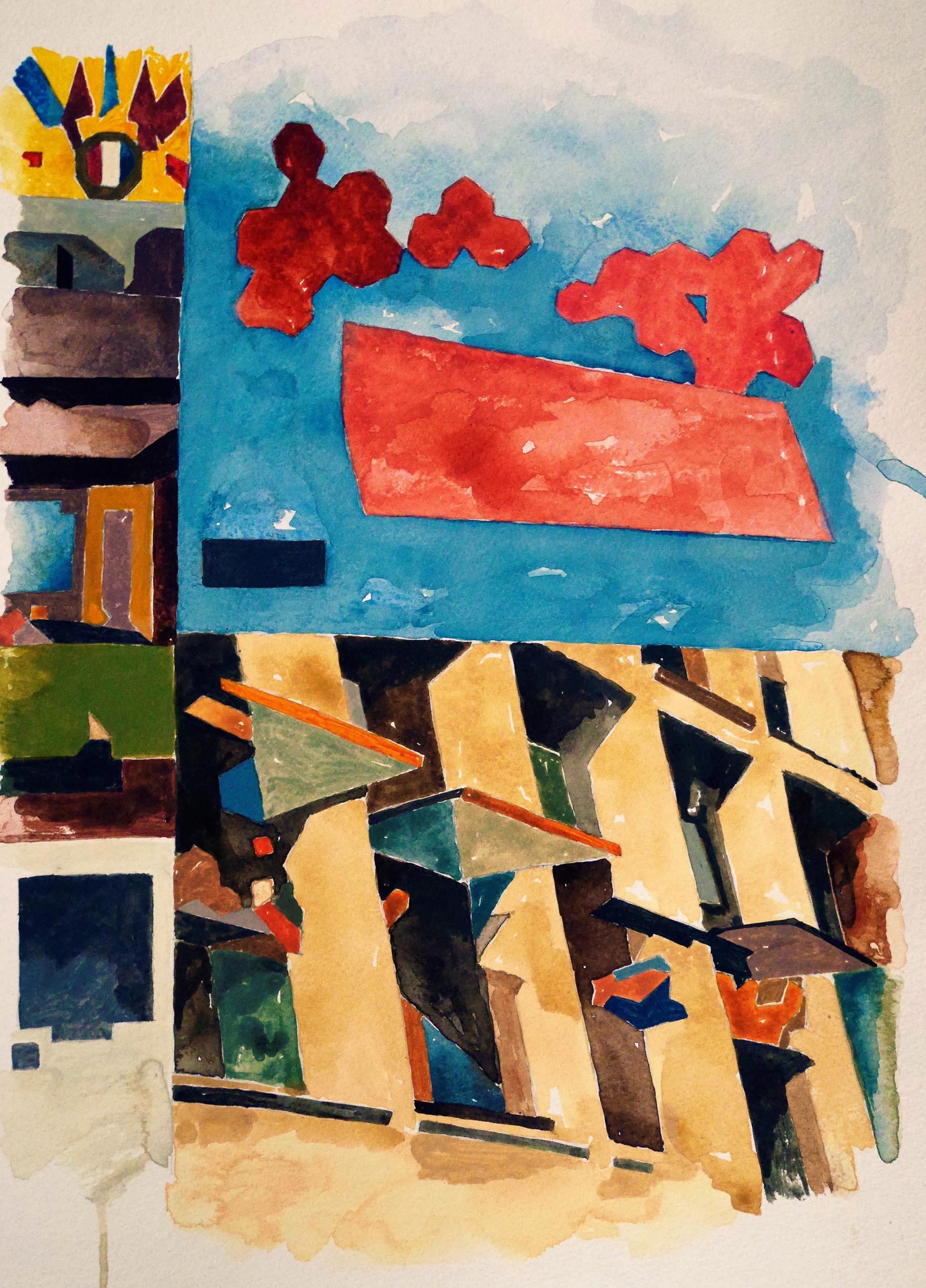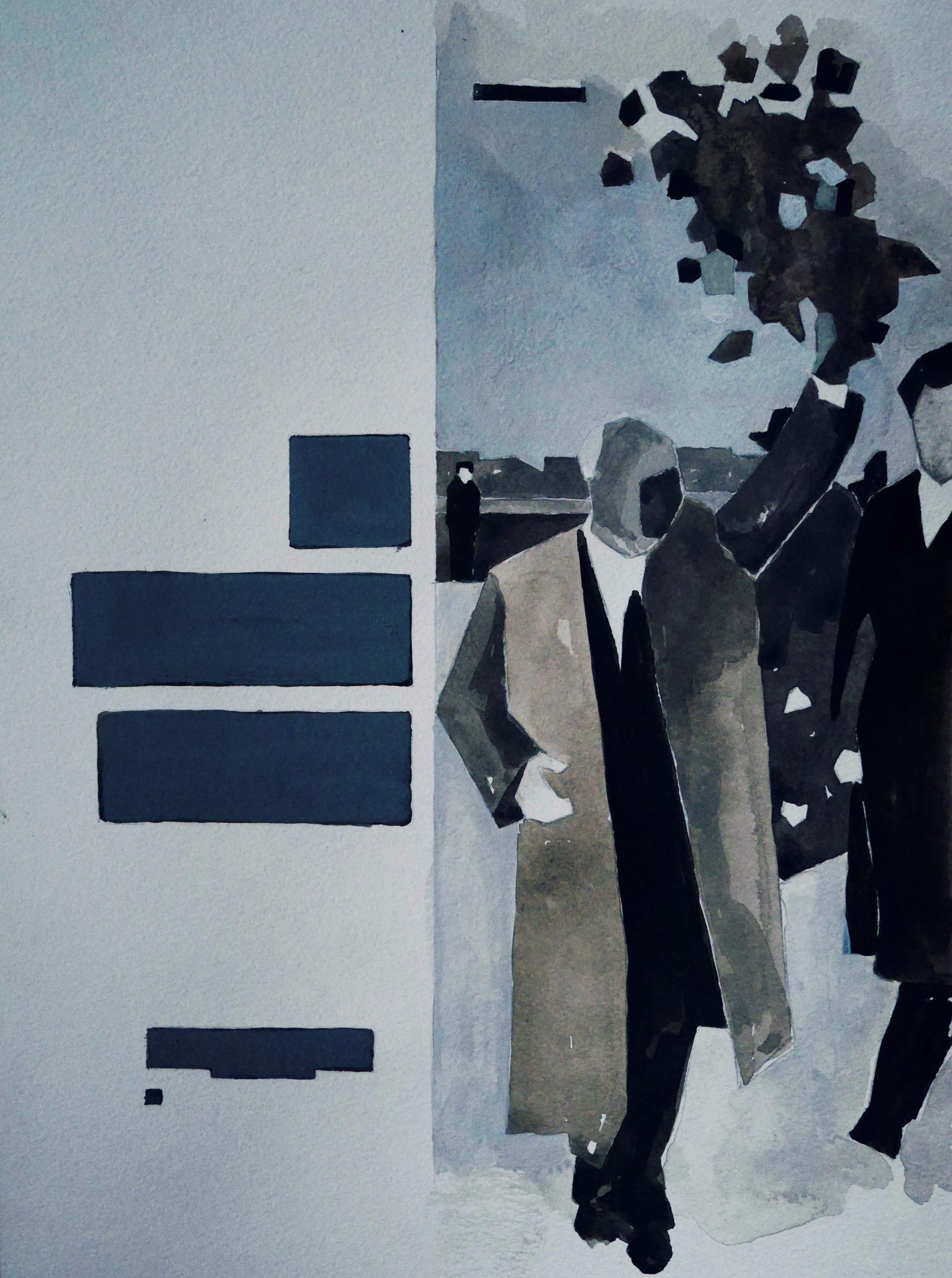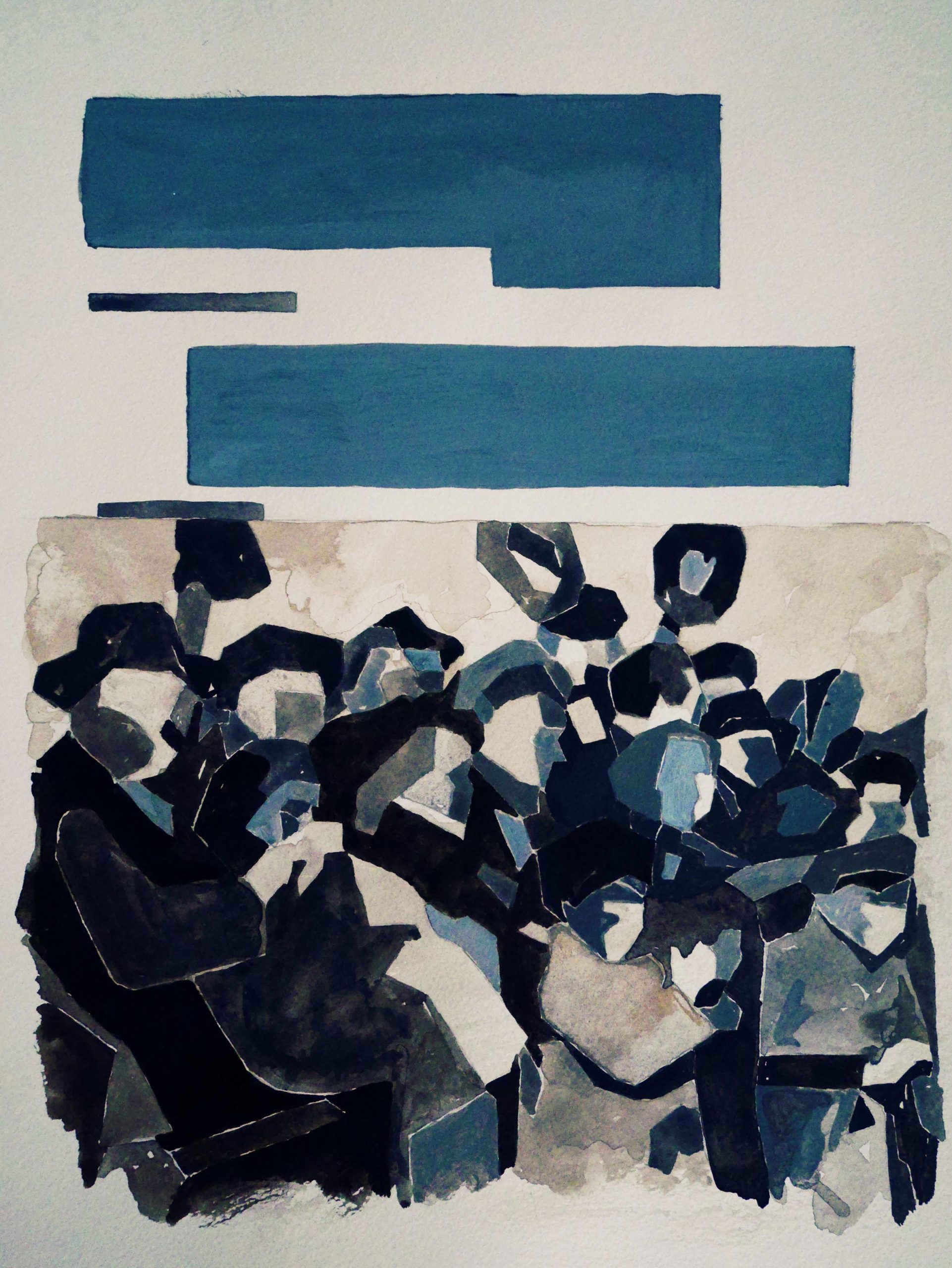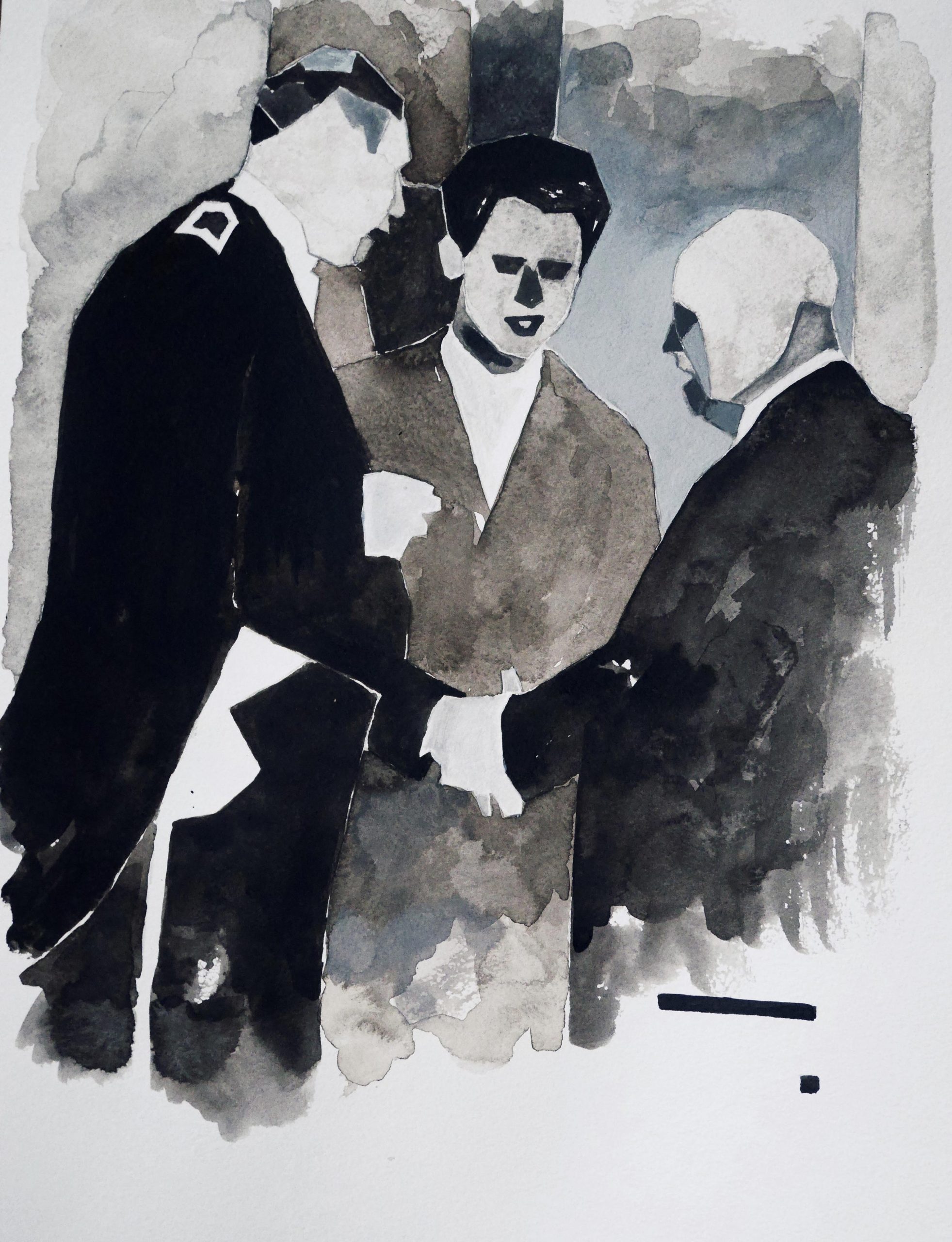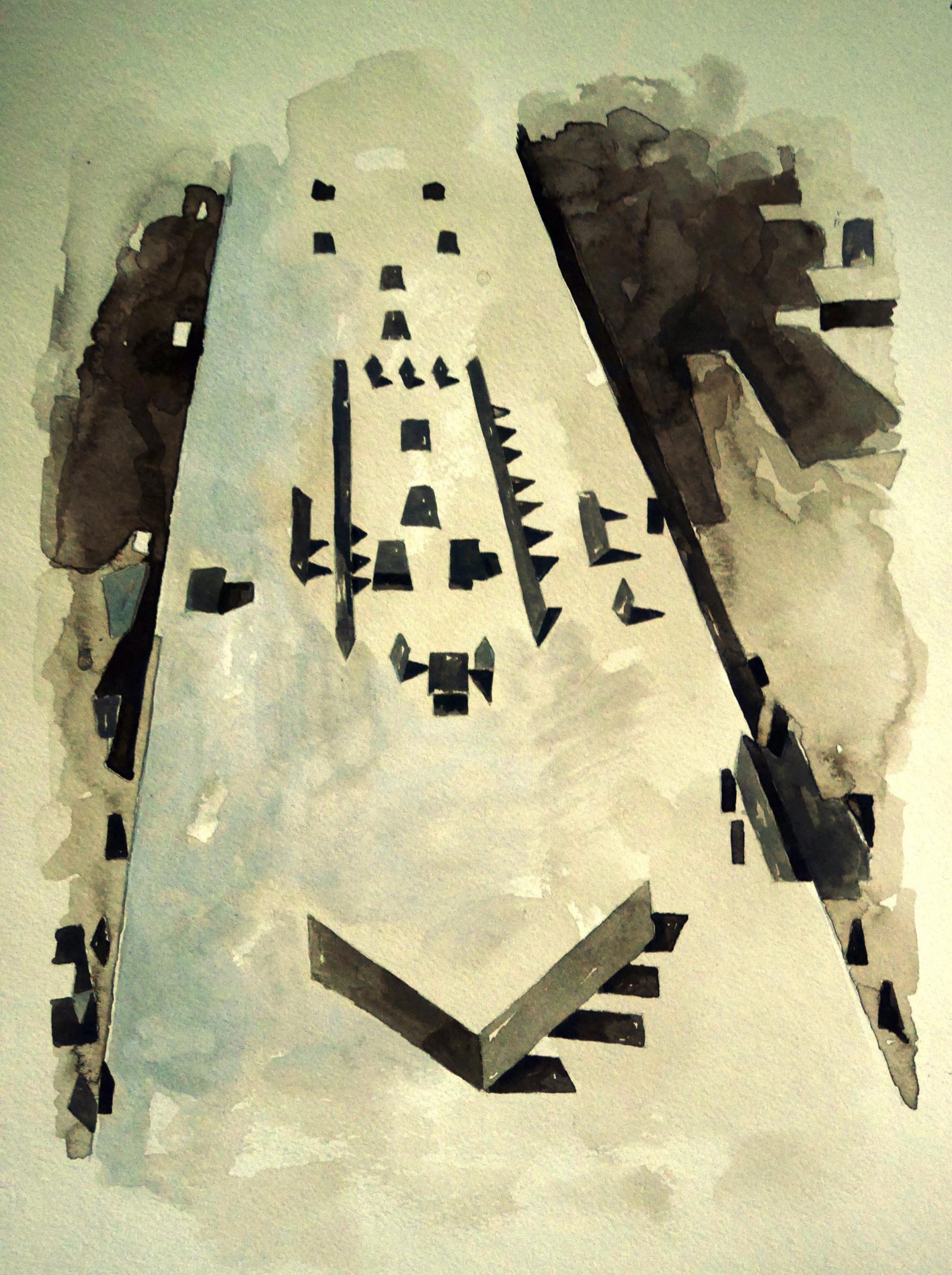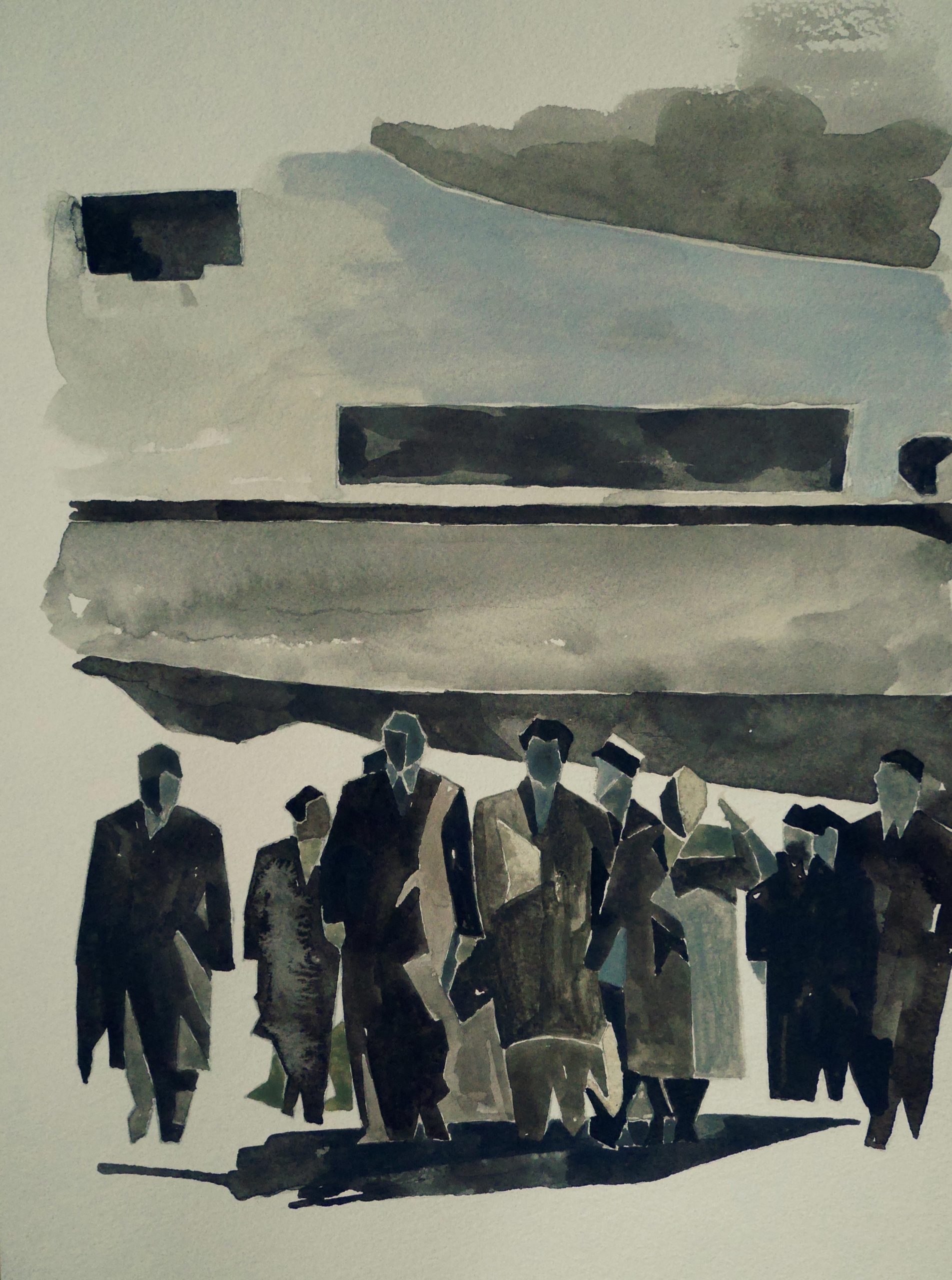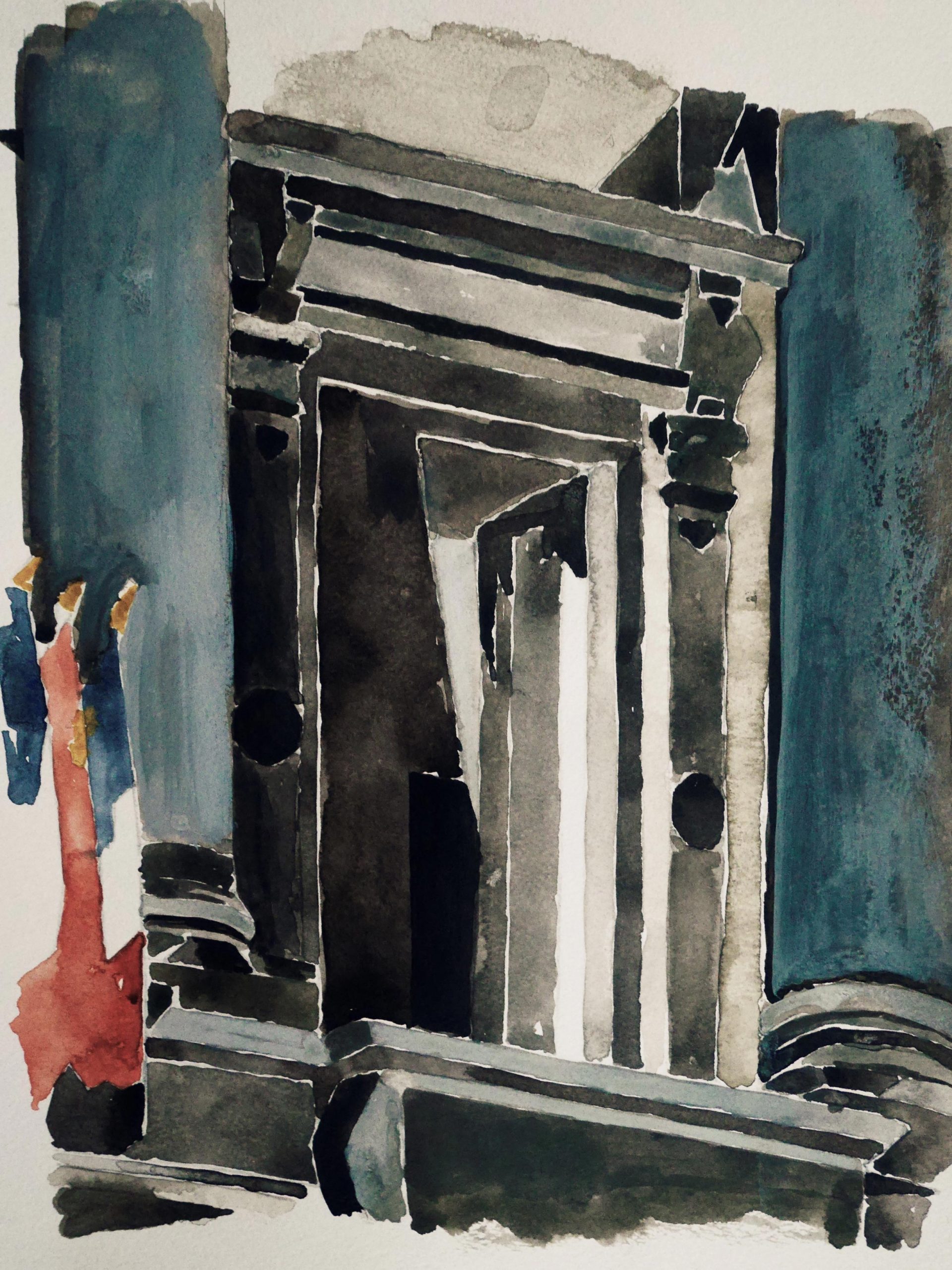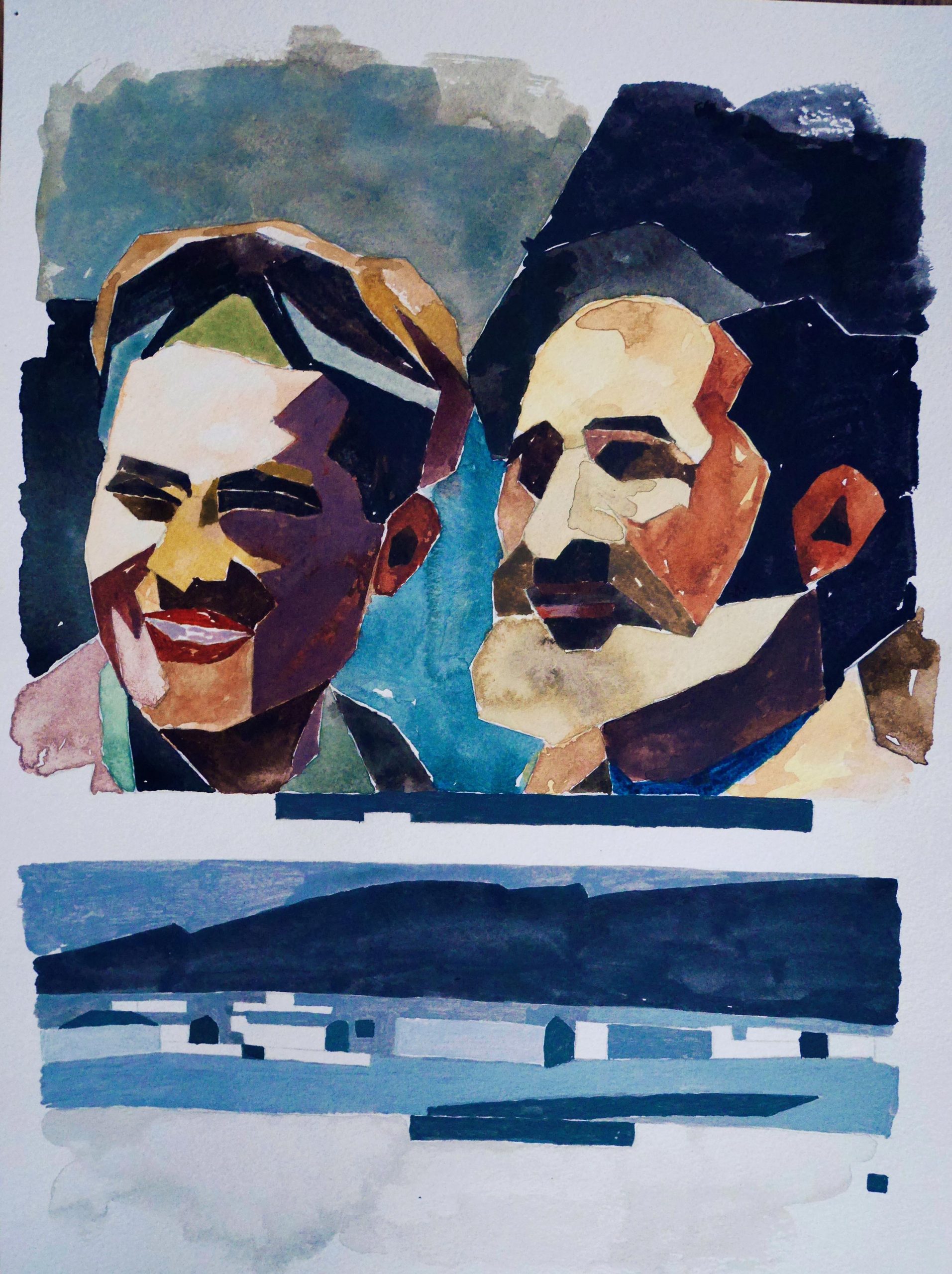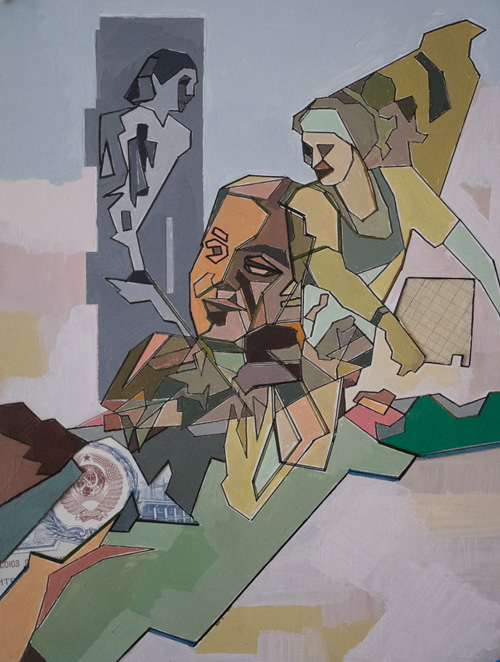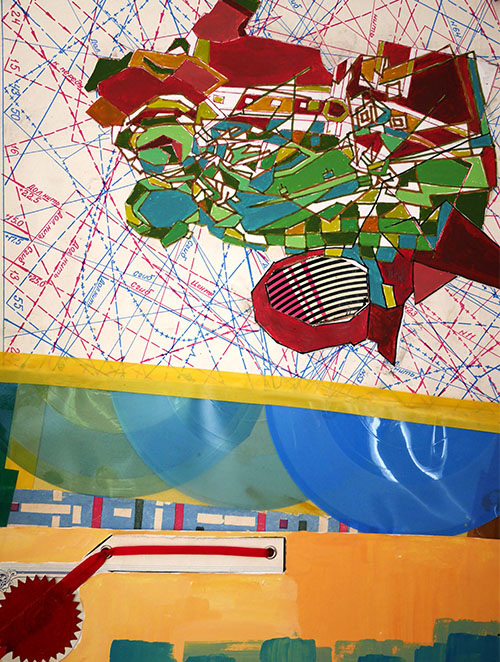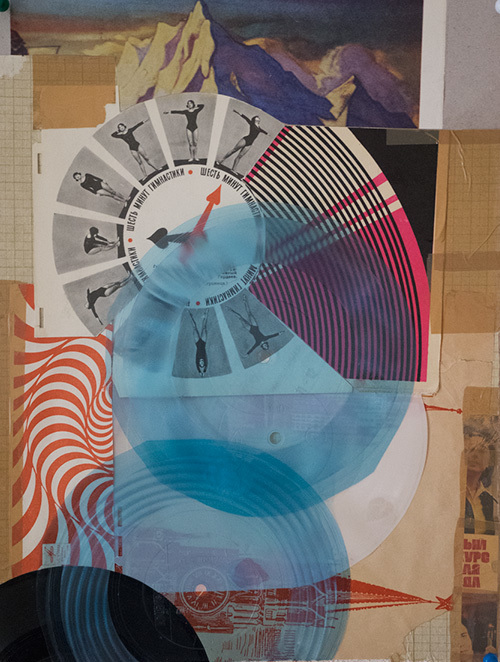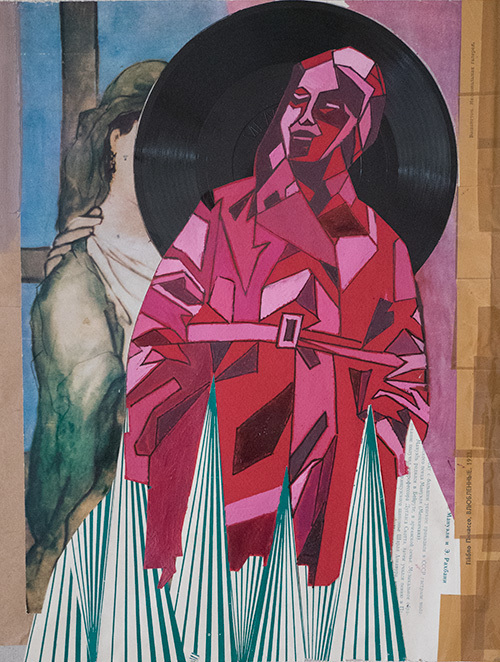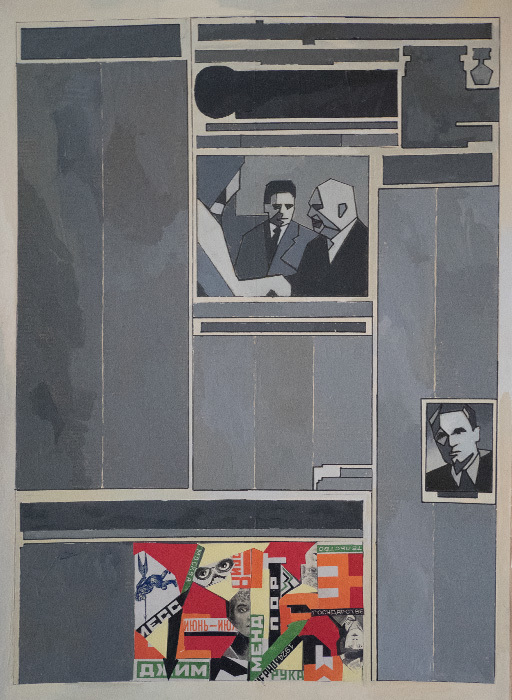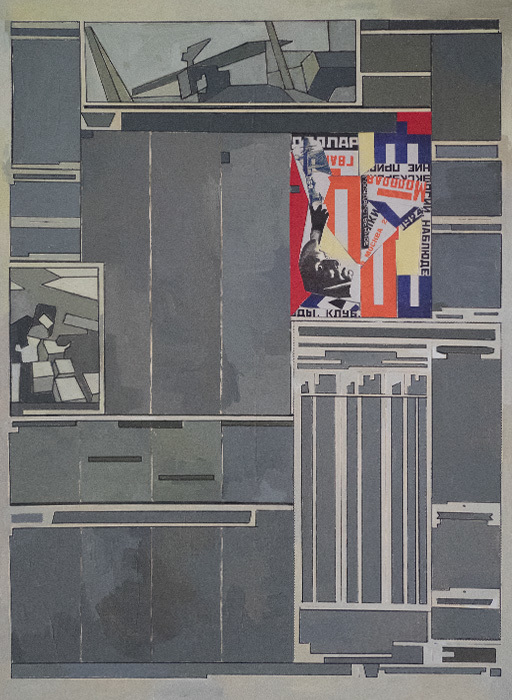Remixing and Reloading
Memory can play a great role in approaching drawing and earned abstraction, in the sense that it informs sequential stages of engineering an image. It helps the construction and it generates the immediate future.
This body of work responds to the existence of popular design and culture and reassesses Modernist tropes of the Russian avant-garde of the beginning of the 20th century and their legacies in contemporary Abstraction noticeable for its Constructional and Systematic applications. Some of the work have a collage approach and attitude, which draws elements the rich repertoire of the internationalised visual codes of the Russian avant-garde via the appropriation, and postproduction (the reconfiguring of an already worked material) which, suggestively makes use of the Soviet era printed ephemera; the minor transient documents of everyday life.
Through the negation of the original photographic and the written content, the political and the ideological message gets diluted and furthermore obliterated with the help of the process of painting and medium translation in general. In this way a new mode of perception emerges which, inevitably generates attractive tensions between figuration and abstract considerations. Furthermore this proposes a visual engagement based solely on the mechanisms and the formalities of image making. I am working from the point of view of a present occupier of the current physical and cultural place, in this case Moscow.
The 20th century Russian visual arts are very offering in terms of diverse references, starting of course, with Suprematism and Constructivism and continuing with Socialist Realism. My artistic concerns in the recent past have revolved around notions of informed Abstraction and the unresolved issue of the planar treatment advanced in Modernism. Since moving to Moscow I have been trying to continue searching for abstraction in tangible situations, often found in my physical proximity. My combinations and contexts take on found material the printed matter of the Socialist Realism era up the ‘80s and sometimes close to contemporary times.
I enjoy making use of the local culture elements and remixing and reloading them in a contemporary context, liberated from any political ideology and propagandist intentions. The proposed scenarios may trigger some ambiguous familiarities for the local perceivers, but they may remain at the level of abstract formalism for others.
